ENGLEWOOD, Colo. — The Broncos welcomed a special visitor to practice on Friday, as Peyton Manning watched training camp with Steve Atwater as part of the daily Training Camp Live show near the practice field.
Over the course of the 45 minutes or so as Manning served as Atwater's co-host, he shared his perspective on the current team, how Vic Fangio's defense will make Drew Lock better in practice and much, much more.
But one thing he couldn't — or wouldn't — do was evaluate the winners and losers of each rep.
"Looks like the defense is … I don't know," Manning said with a sigh. "I hate to join the daily training camp evaluation club. I can remember all those years playing and you throw a couple of incompletions in practice and everyone's going, 'Well, the Colts offense is going to be bad this year. They threw some incompletions.' So I'm going to probably reserve judgment. But, Steve, as you know, there's probably a winner every single day in practice. The defense is going to have their day, the offense is going to have their day. This is kind of the first team drill we're getting to watch. I feel like I'm sort of teasing the fans. I'm getting to watch the practice that they don't get to watch. It's like sort of dangling ice cream out in front of a child."
Well, it's true. You can't watch all of practice. But we'll give you something better than ice cream. Here are highlights from Manning's words of wisdom from his time watching practice.
Manning's offseason conversation with Lock
Though Manning wasn't asked for any broad assessment of Lock's skills, he did discuss one thing that the second-year player does well: moving in the pocket and using his mobility to escape pressure.
"It doesn't really matter how fast you run the 40-yard dash in; I couldn't run out of sight in a week," Manning said. "But I thought I could move in the pocket enough to get throws off. I think that's something Drew does well. … It looks to me like he keeps his eyes downfield as he's moving in the pocket. That's important, right? One quarterback one-on-one tip is quarterbacks should never look at the defensive line. You should never have your eyes at the defensive line; you have your eyes down the field the whole time, and you feel the defensive line. Kind of a sixth sense, if you will. That's a good thing for a quarterback to work on."
Lock, a former counselor at the Manning Passing Academy, has known the five-time MVP quarterback for quite some time. During this past offseason, he reached out to Manning for advice as he prepared for his first full season as the Broncos' starting quarterback.
"I spent an hour and a half on the phone with him earlier this year, kind of talking about some things that I use to do in the offseason: kind of have an offseason plan, writing that schedule down," Manning said. "He had great questions, and that's all you want in a young quarterback: somebody that wants to learn, somebody that wants to get better. I think he's got a little swagger to him, got a little edge to him, which I think is important. I think you've got to have it; it's a tough position and a lot of people [are] expecting things from you. So to have a little swagger to you is a good thing."

How Fangio's defense will help Lock become a better player
One thing Manning and Lock have in common is that they both have practiced against Fangio's defense during their careers. Manning did so in Indianapolis, while Drew is doing it now. With that experience, Manning said he was able to learn valuable lessons that translated to games.
"Coach Fangio is a defensive guru," Manning said. "He's been doing it for a long time. Vic Fangio, people maybe don't realize, he was the defensive coordinator for the Colts in my second, third and fourth seasons. So I competed against him in practice every day. Competitive guy. … Vic liked to win the practice. He liked to compete, so we had some good battles. I always felt like that competition in practice kind of helped us play better in games. He used to give you a lot. He had basic defenses, but we had what we called exotic blitzes where they would kind of bring multiple defenders. When you see a lot of that in practice every day, it kind of helps you when you get to the games. I think Drew Lock will benefit from competing against this Vic Fangio-style of defense every day in practice. Even though you may not complete every pass and you may have some ugly practices from time to time, you just sort of file it all away. And the idea is to get reps and get ready to play the Chiefs and the Chargers and the Raiders."
Certain players can also make Lock better, Manning noted. He highlighted two from his time with the Broncos as examples: Aqib Talib and Von Miller.
"I though Aqib Talib was a tough guy to go against in practice every single day," Manning said. "He was a smart corner who had seen a lot and would not guess, but I think he would know that, 'Hey, I think this going to be a three-step drop,' and so he would be flat-footed and would intercept a slant or a hitch. Is it an irritant to the quarterback? Yeah, but he deserves it. He's earned it in film study, and his knowledge, I think it made me better because it made you be more disciplined. … So when you played against guys that you put into that category, you sort of use that information. … Von always went pretty easy on me. Von used to always kind of — he would beat our tackle and rush right by me and just kind of make a little noise, just a little, 'Hey, just so you know, I was here. I really could have hurt you there, but you're my quarterback and so I'm not going to do it.'"
Why fans should be patient with the new offense
Having watched one practice, Manning was loathe to make any assessment on who was playing well, and he hesitated to make any evaluation of the team, too, especially with how the novel coronavirus pandemic has affected how teams could develop over the offseason.
One thing he did want to emphasize, though, was that fans should not expect the offense to fire on all cylinders immediately, though it should progress throughout the year.
"It's hard to know with all that's been going on, zero offseason program," Manning said. "I think everybody, I'm sure — I was with Coach Fangio a couple weeks ago — and you're really just for the first time seeing what kind of shape these guys are in. Coach Fangio hadn't met Jerry Jeudy until a few weeks ago, right? It was all virtual and Zooms. So I think it's still early to make some bold prediction or somebody who says they know. But I think every team obviously is at that type of juncture in getting to know their team.
"Certainly with a new offensive coordinator in Pat Shurmur with Drew as a quarterback, It's going to take a little time for them to kind of get on the same page. That doesn't just happen overnight. That's why you have offseason programs, that's why you have the April and the May and June minicamps. That's why those are important, I think. So you take all that out and now we're trying to cram for a test which is coming against the Titans in just a couple of weeks. That's not easy. Look, I'm a quarterback defender. I would say let's understand that it's not going to be perfect early on, but I think things will get better as the season goes on. Count on our defense to keep us in as our offense kind of finds their rhythm and understands all the nuances of this new offense. I still think you can win games as you're still kind of finding your way and finding your rhythm."
Take an inside look at the seventh day of training camp for the Broncos with photos from team photographers Gabriel Christus and Ben Swanson.

Justin Simmons says hello to his family during training camp at UCHealth Training Center in Centennial, CO, August 21, 2020. Photo by Gabriel Christus
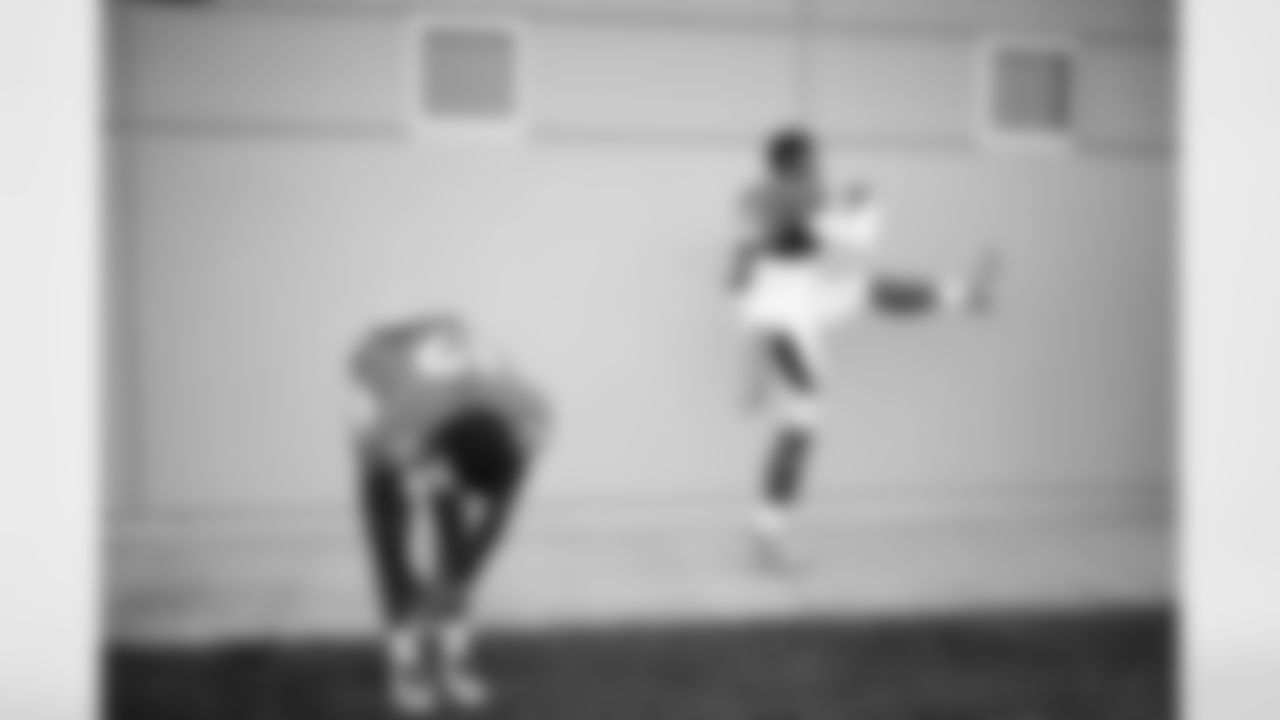
Trinity Benson and Courtland Sutton during training camp at UCHealth Training Center in Centennial, CO, August 21, 2020. Photo by Gabriel Christus
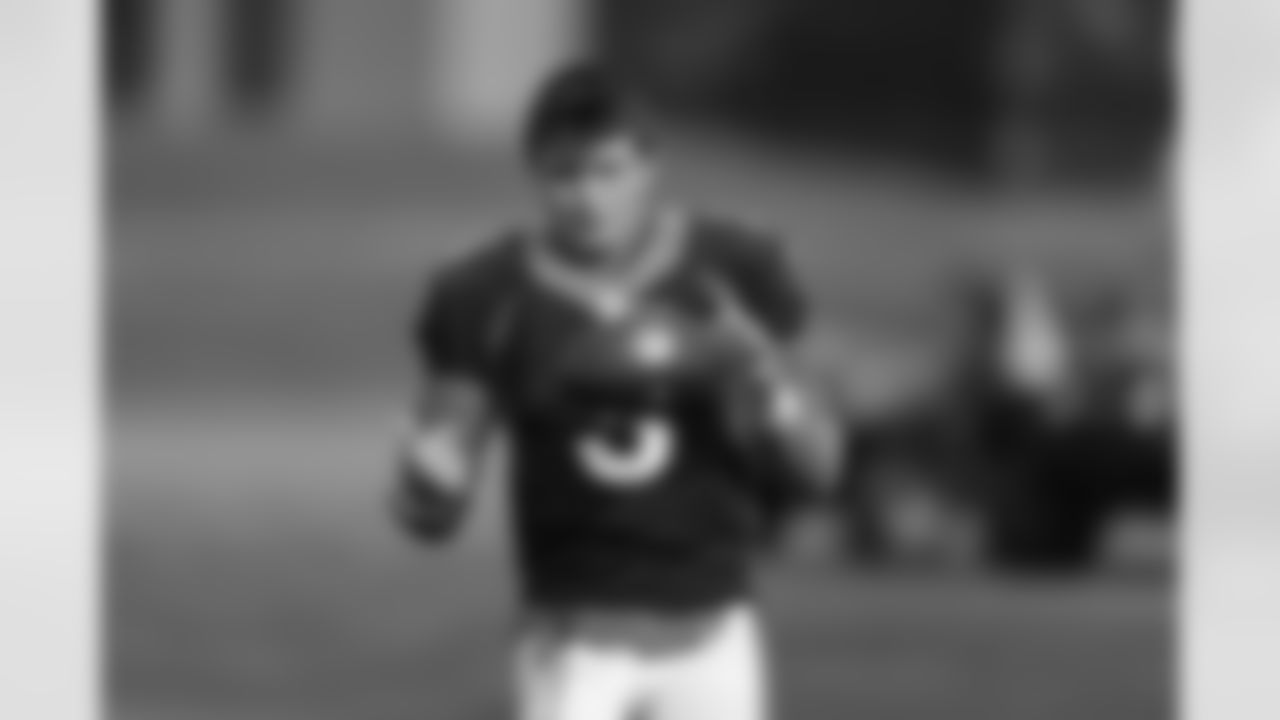
Drew Lock during training camp at UCHealth Training Center in Centennial, CO, August 21, 2020. Photo by Gabriel Christus
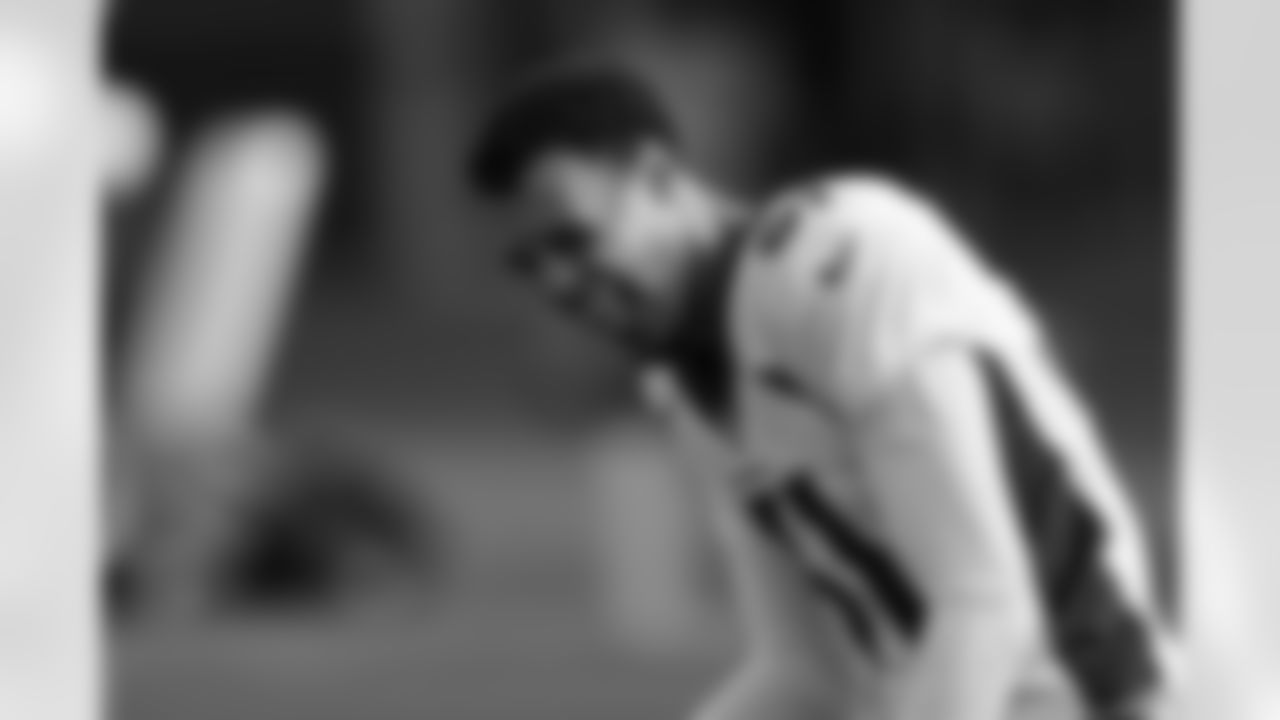
Justin Simmons during training camp at UCHealth Training Center in Centennial, CO, August 21, 2020. Photo by Gabriel Christus

Former Broncos Peyton Manning and Steve Atwater watch practice during the Training Camp Live show during the seventh training camp practice at UCHealth Training Center on August 21, 2020. (Photo by Ben Swanson)
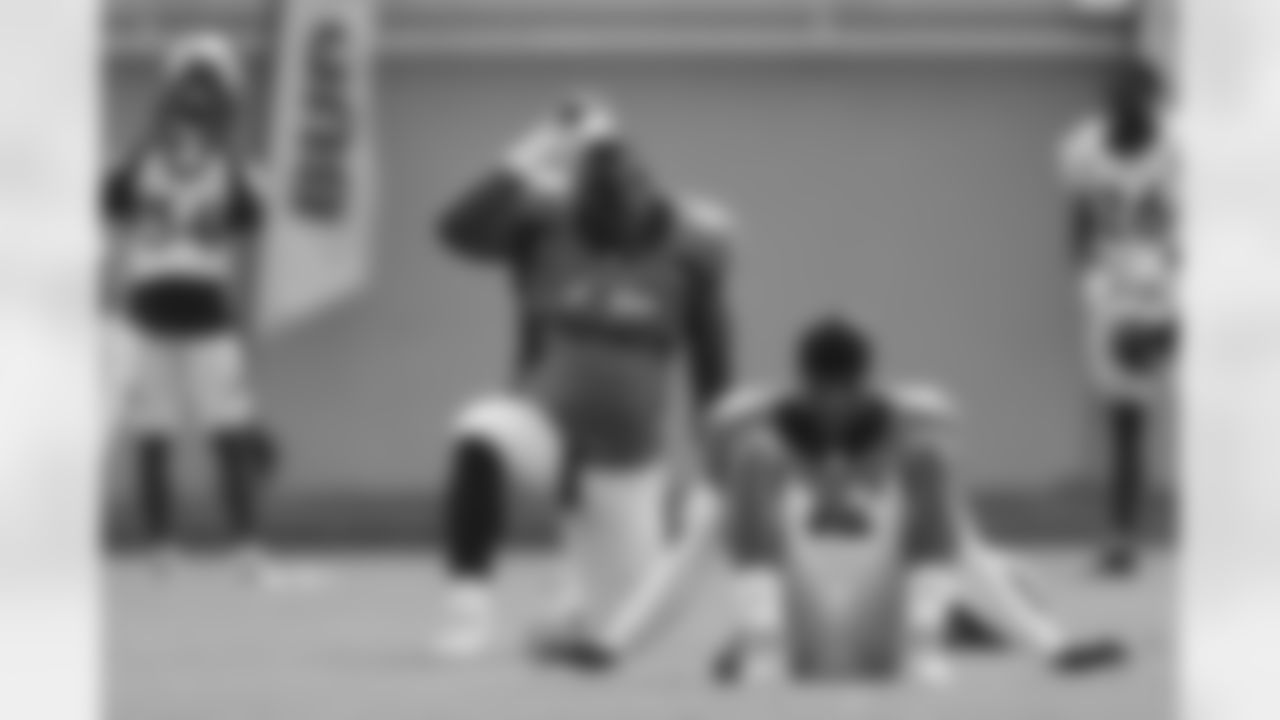
Tyler Jones during training camp at UCHealth Training Center in Centennial, CO, August 21, 2020. Photo by Gabriel Christus
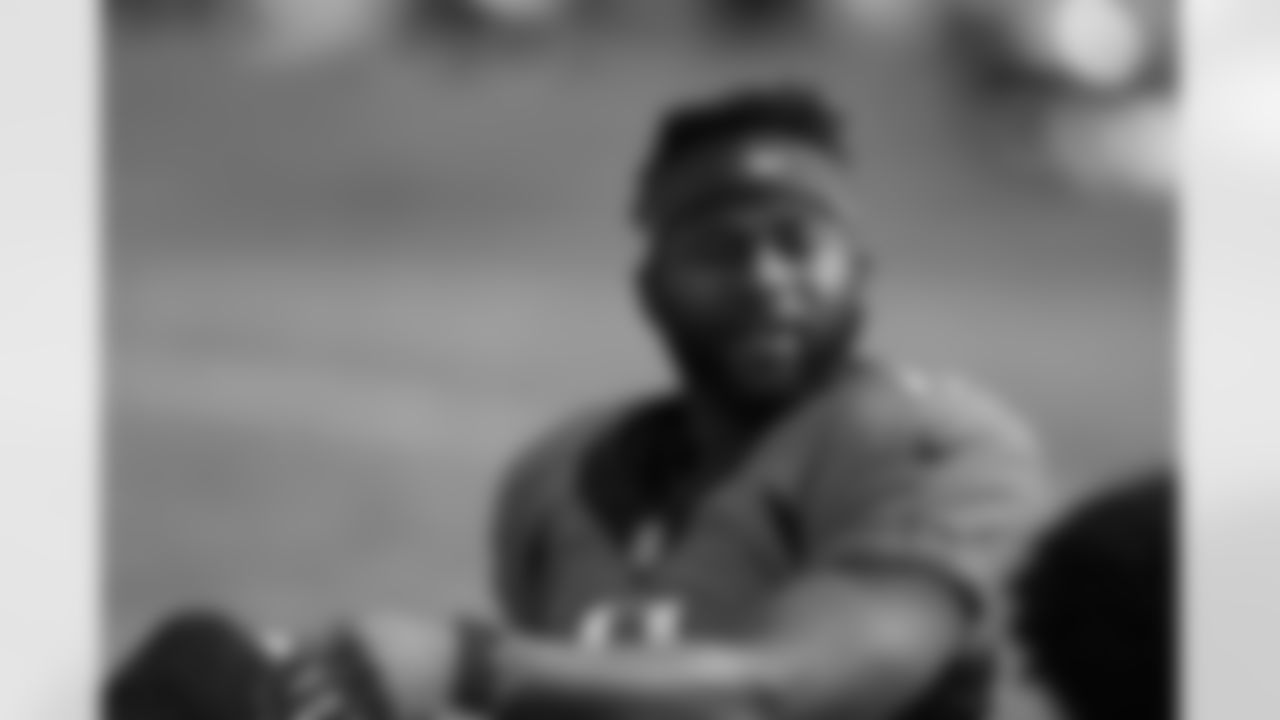
Diontae Spencer during training camp at UCHealth Training Center in Centennial, CO, August 21, 2020. Photo by Gabriel Christus

Courtland Sutton during training camp at UCHealth Training Center in Centennial, CO, August 21, 2020. Photo by Gabriel Christus
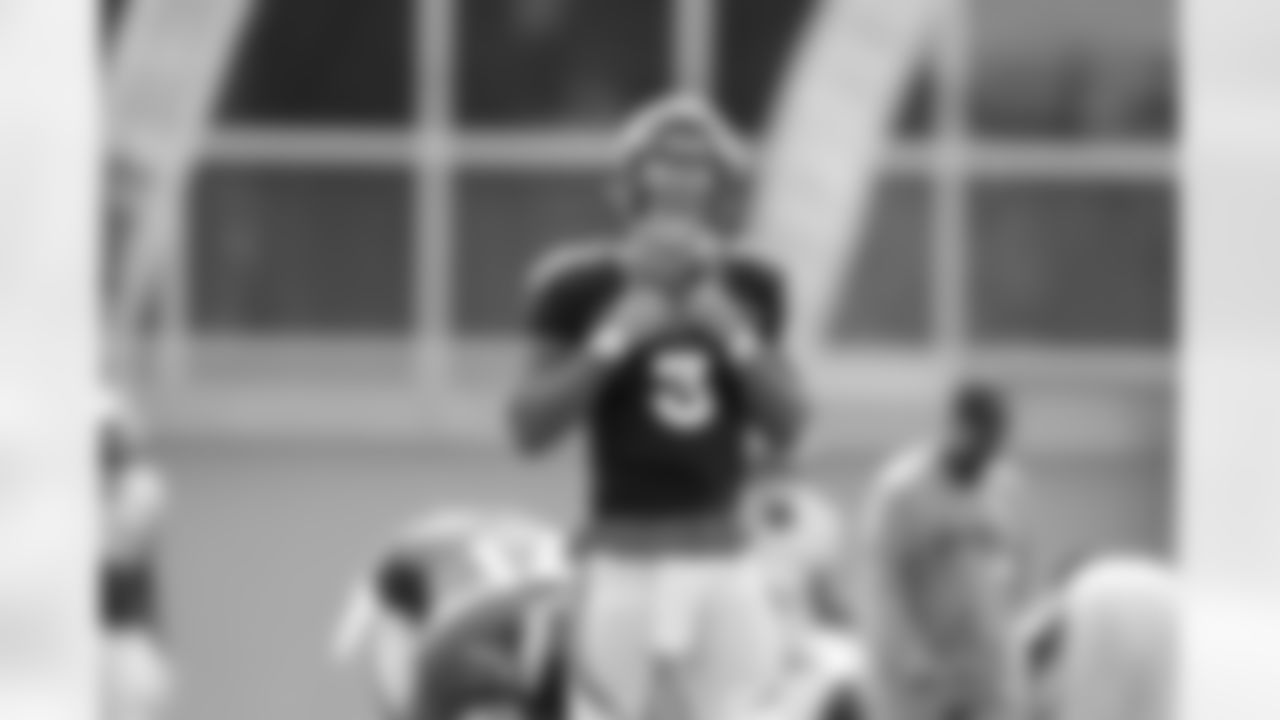
Drew Lock during training camp at UCHealth Training Center in Centennial, CO, August 21, 2020. Photo by Gabriel Christus
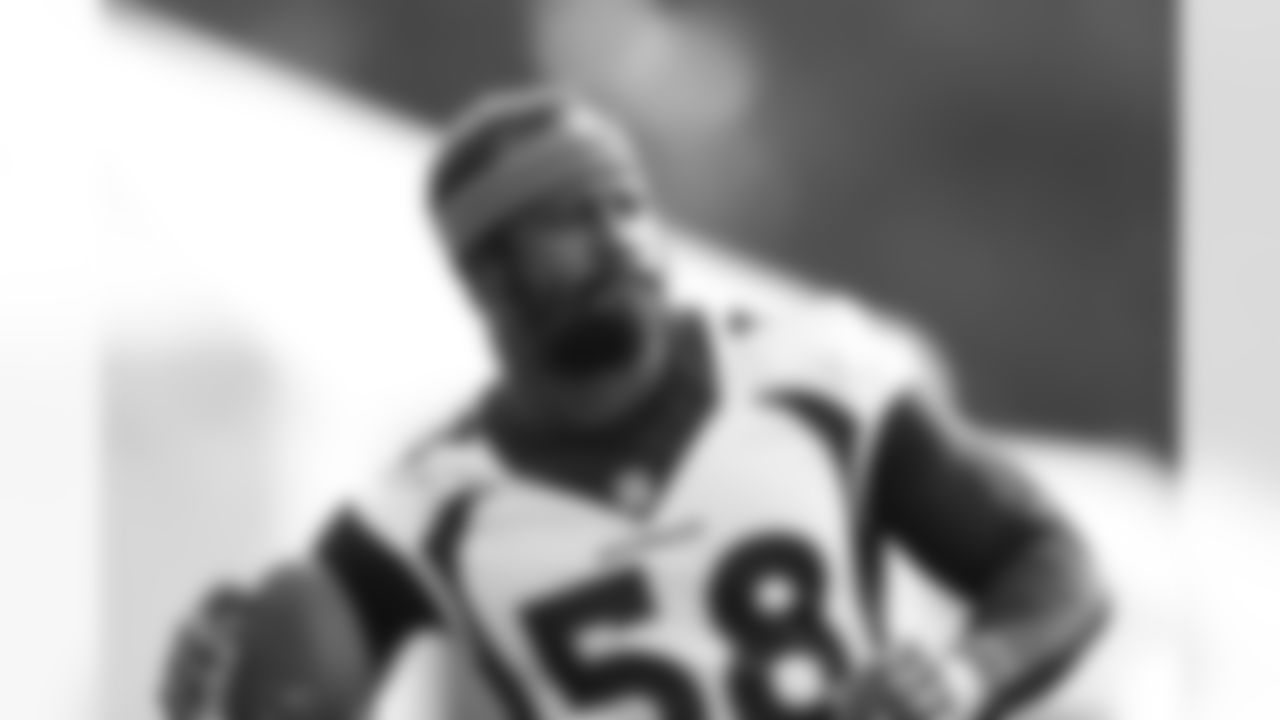
Von Miller during training camp at UCHealth Training Center in Centennial, CO, August 21, 2020. Photo by Gabriel Christus
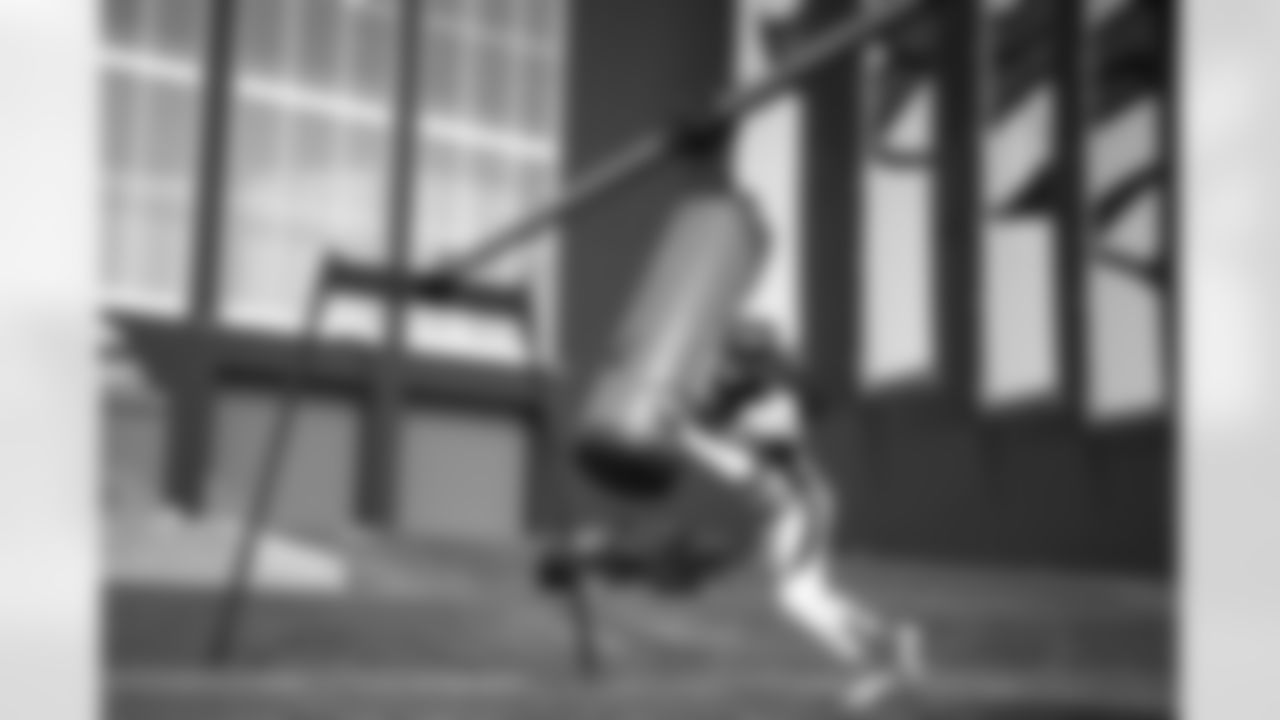
Davontae Harris during training camp at UCHealth Training Center in Centennial, CO, August 21, 2020. Photo by Gabriel Christus
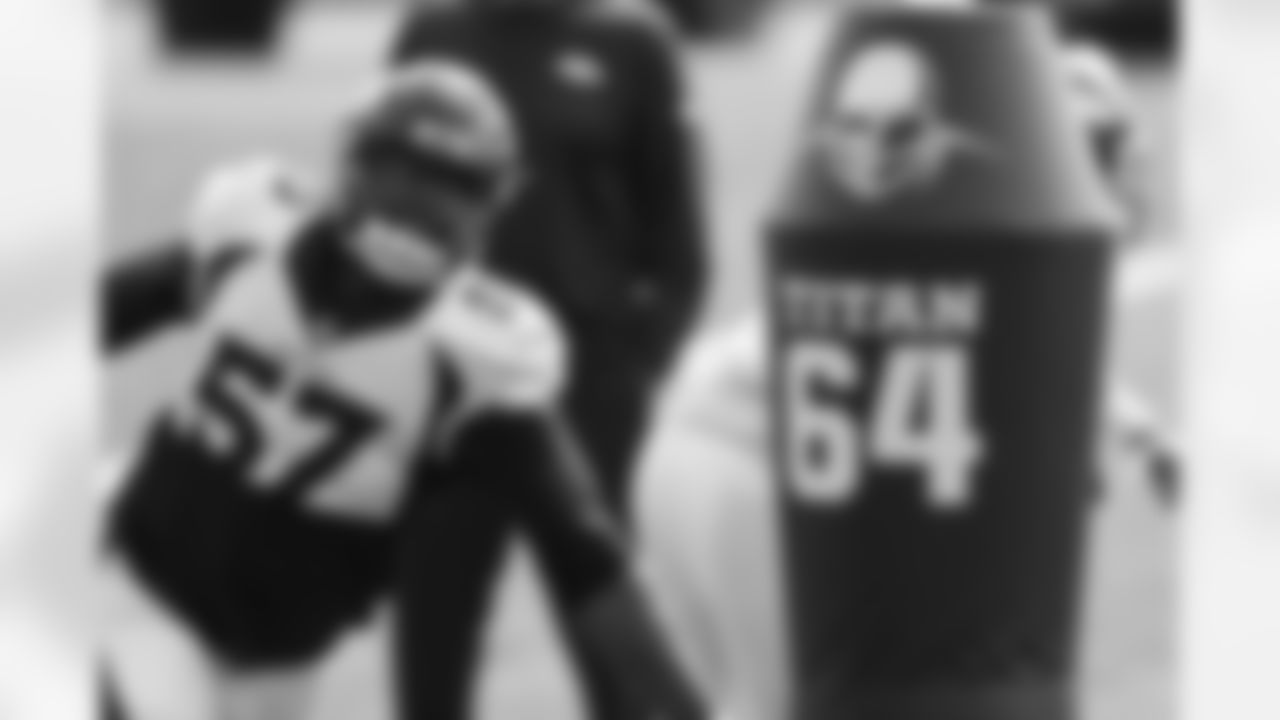
DeMarcus Walker during training camp at UCHealth Training Center in Centennial, CO, August 21, 2020. Photo by Gabriel Christus
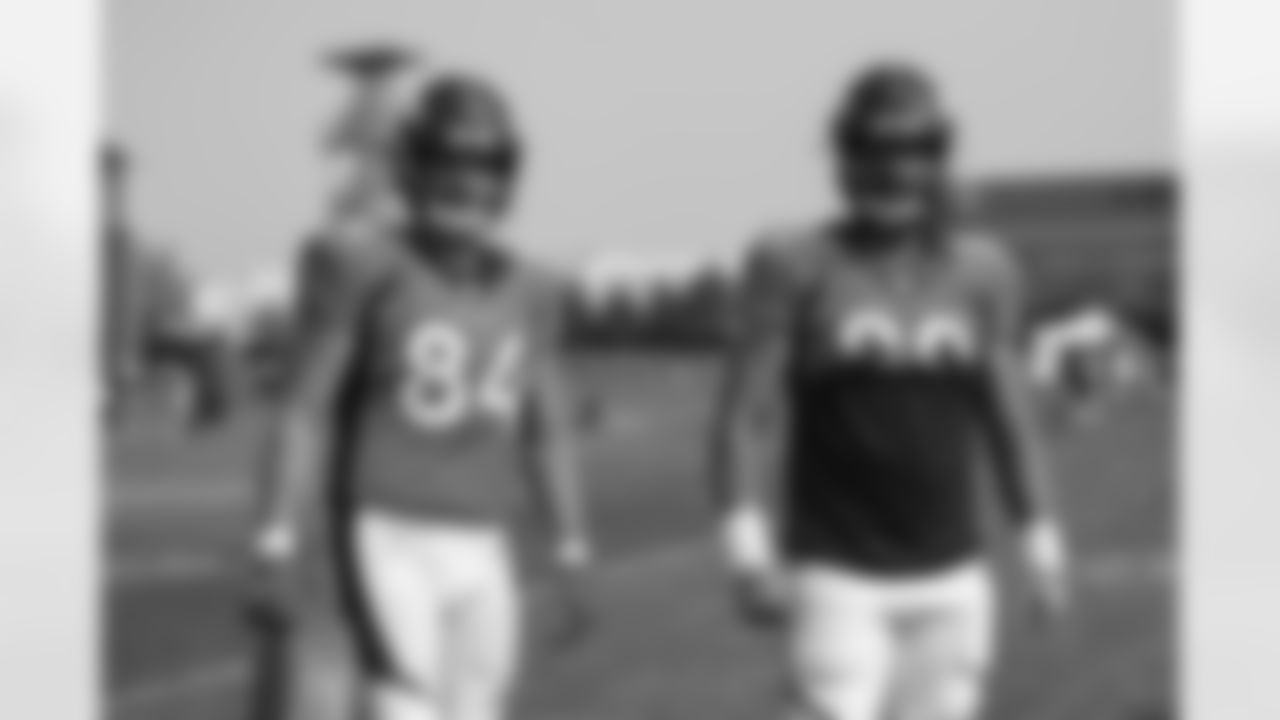
Troy Fumagalli and Jake Butt during the seventh training camp practice at UCHealth Training Center on August 21, 2020. (Photo by Ben Swanson)
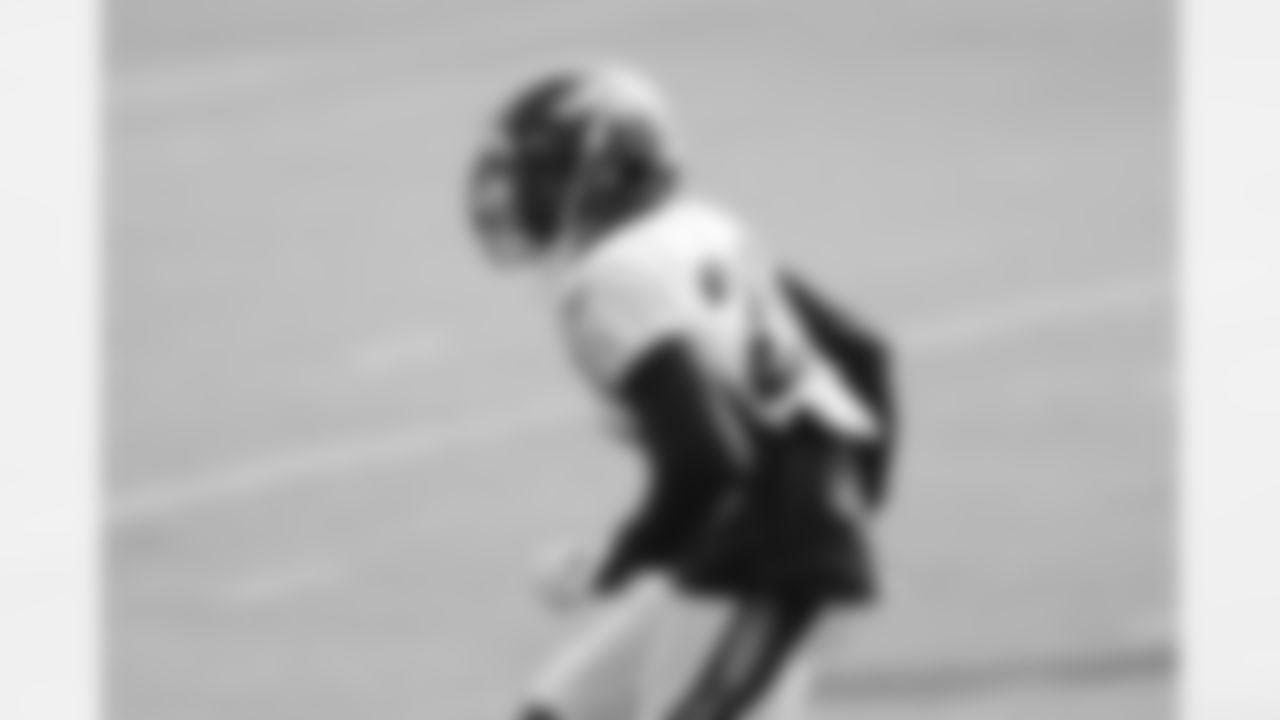
Duke Dawson Jr. during training camp at UCHealth Training Center in Centennial, CO, August 21, 2020. Photo by Gabriel Christus
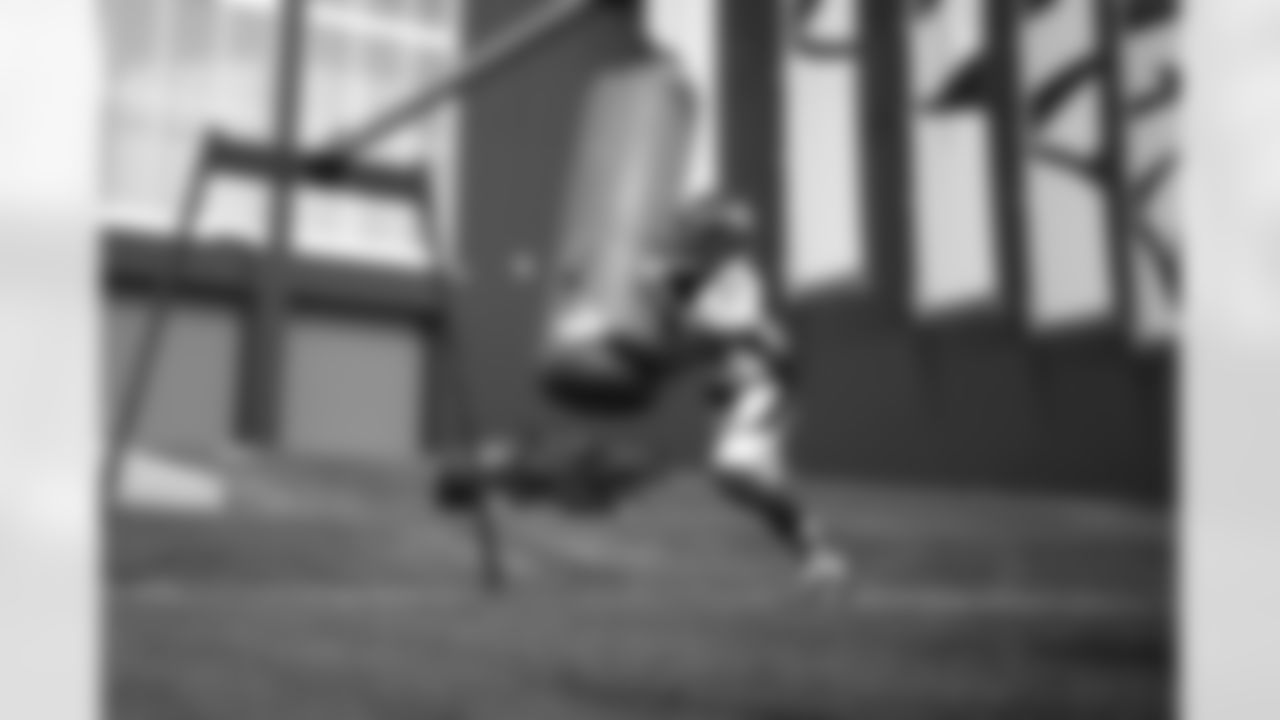
Michael Ojemudia during training camp at UCHealth Training Center in Centennial, CO, August 21, 2020. Photo by Gabriel Christus
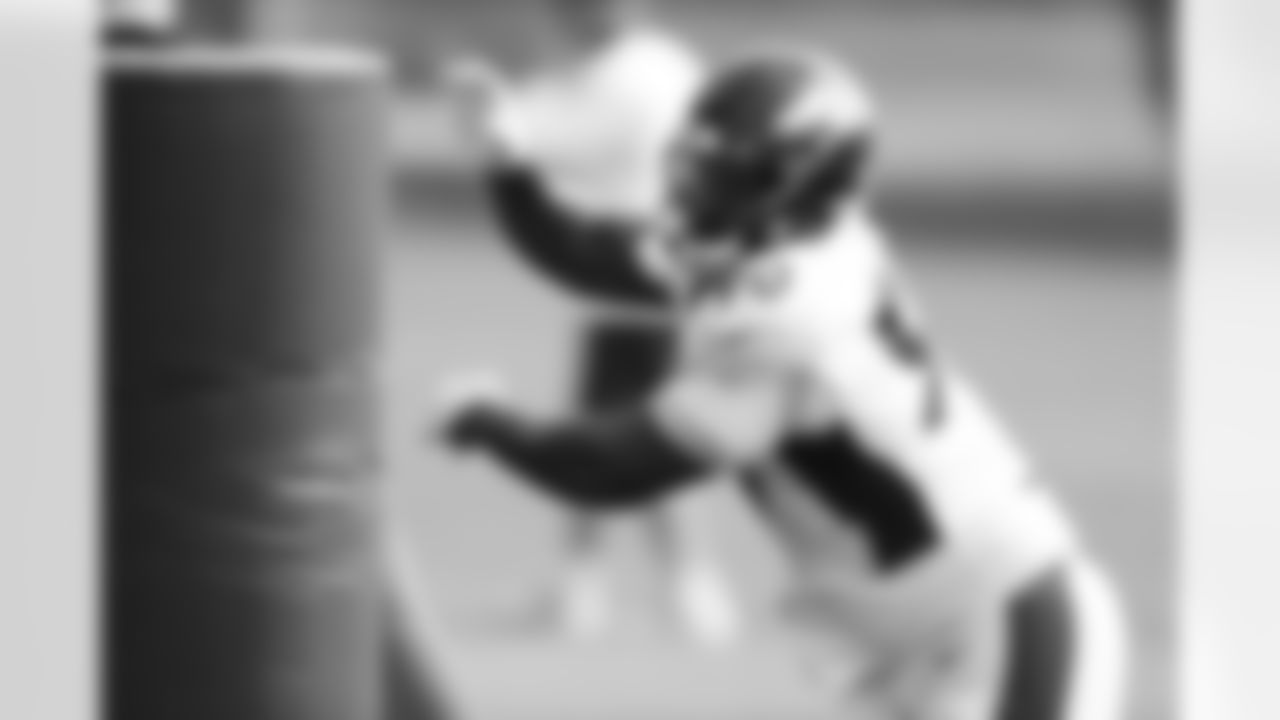
Deshawn Williams during training camp at UCHealth Training Center in Centennial, CO, August 21, 2020. Photo by Gabriel Christus
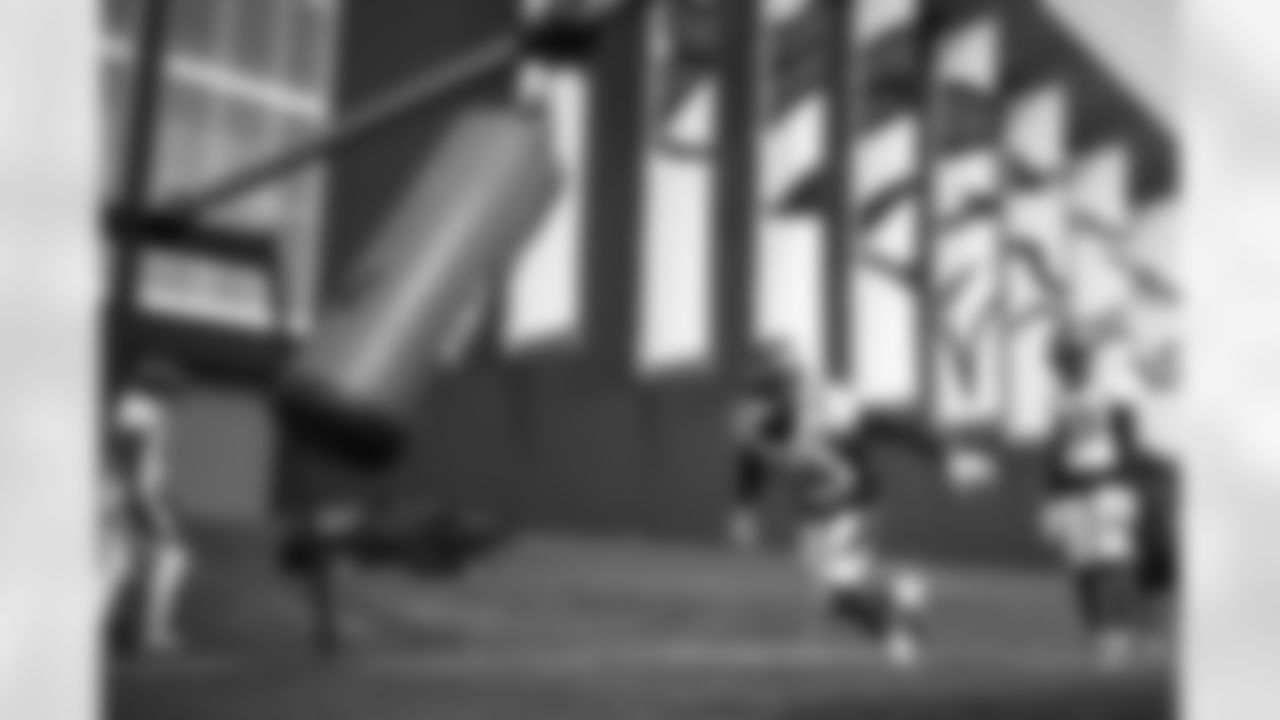
Essang Bassey and Michael Ojemudia during training camp at UCHealth Training Center in Centennial, CO, August 21, 2020. Photo by Gabriel Christus
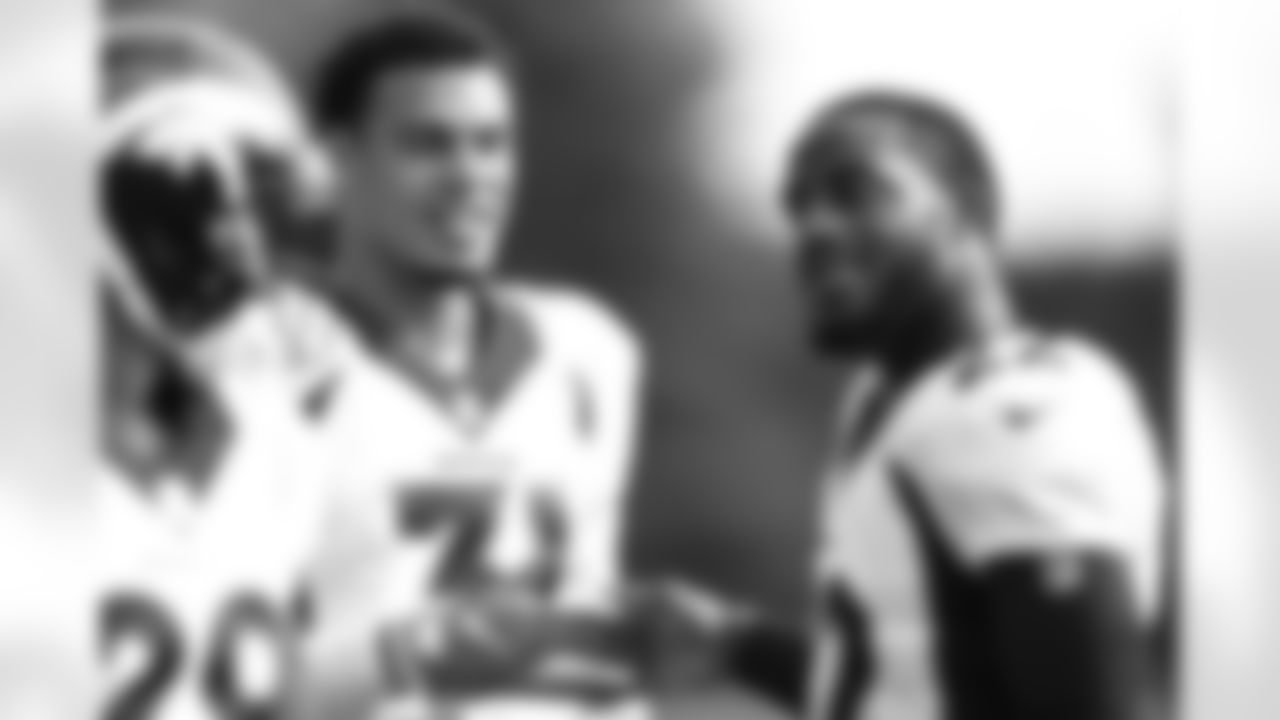
Justin Simmons and Kareem Jackson during training camp at UCHealth Training Center in Centennial, CO, August 21, 2020. Photo by Gabriel Christus
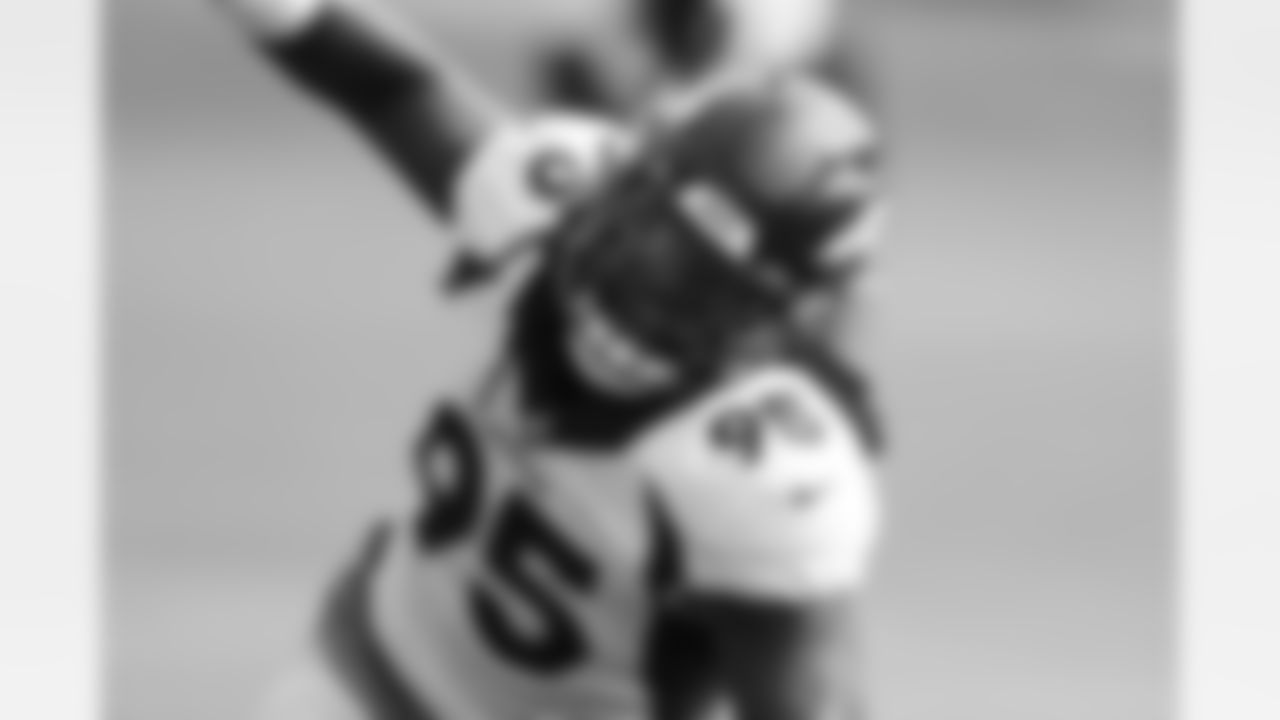
McTelvin Agim during training camp at UCHealth Training Center in Centennial, CO, August 21, 2020. Photo by Gabriel Christus

A.J. Bouye during training camp at UCHealth Training Center in Centennial, CO, August 21, 2020. Photo by Gabriel Christus
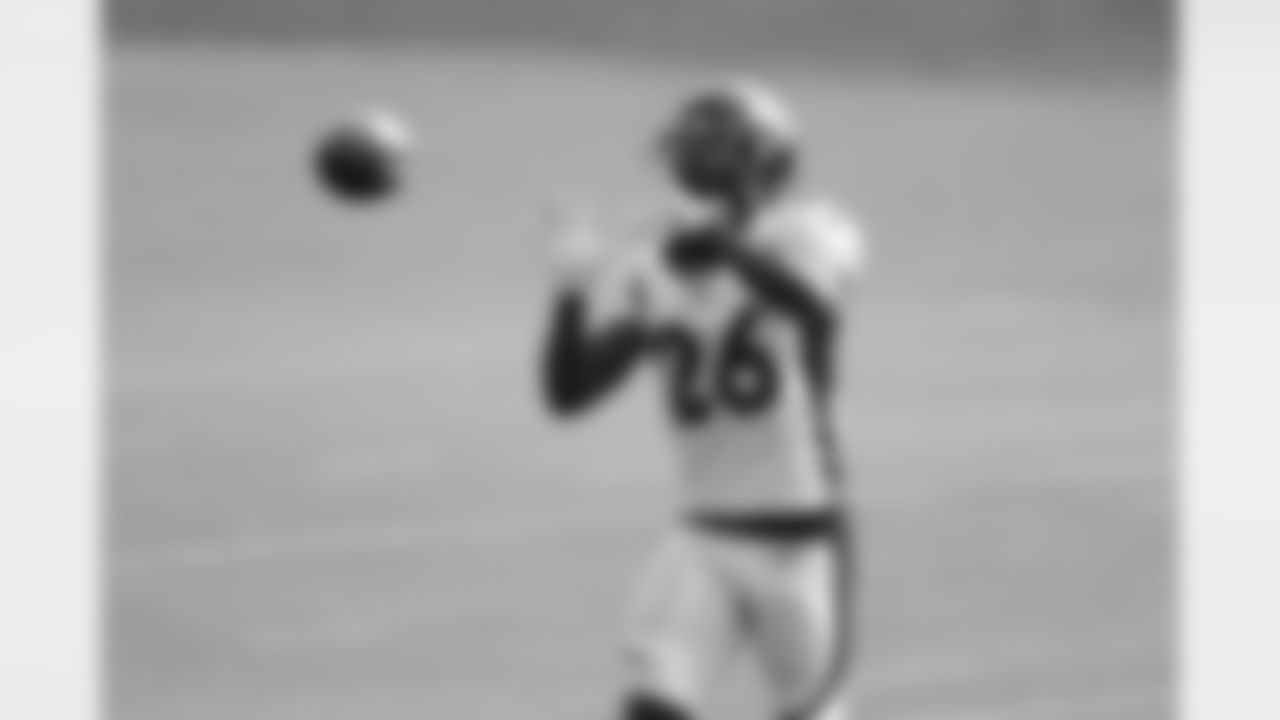
Isaac Yiadom during training camp at UCHealth Training Center in Centennial, CO, August 21, 2020. Photo by Gabriel Christus
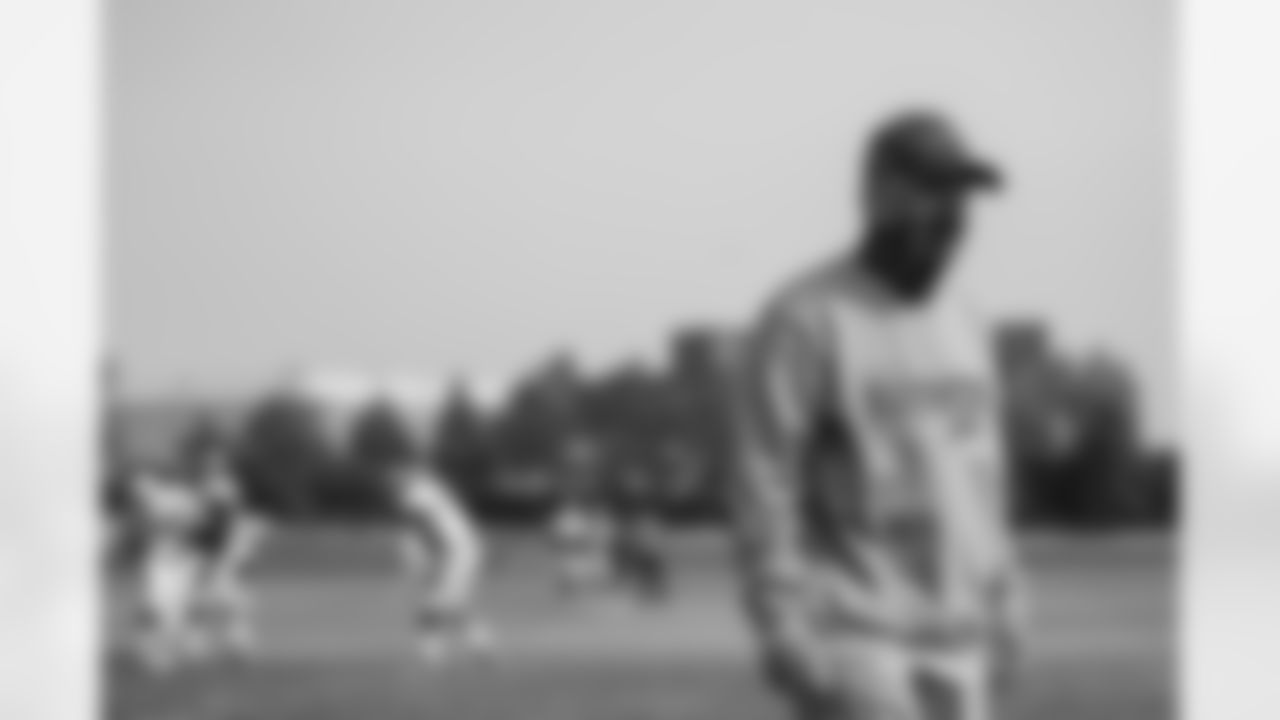
Head Coach Vic Fangio during the seventh training camp practice at UCHealth Training Center on August 21, 2020. (Photo by Ben Swanson)
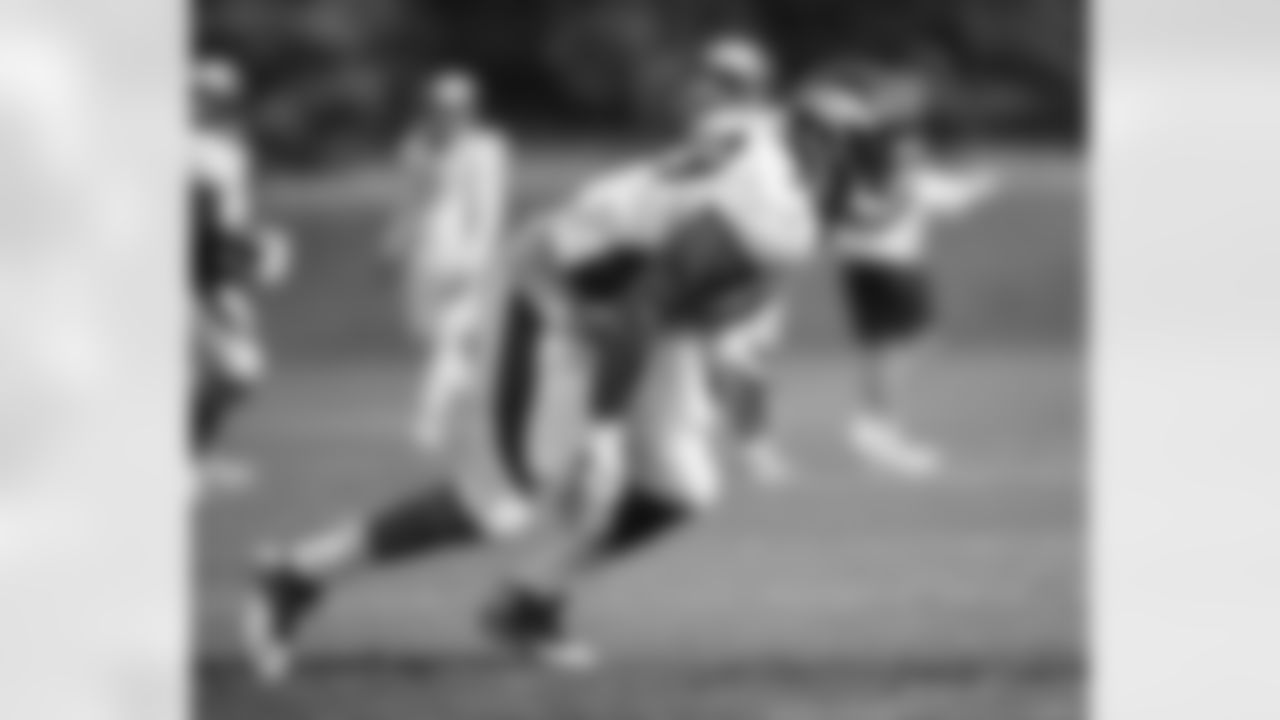
Jurrell Casey during the seventh training camp practice at UCHealth Training Center on August 21, 2020. (Photo by Ben Swanson)
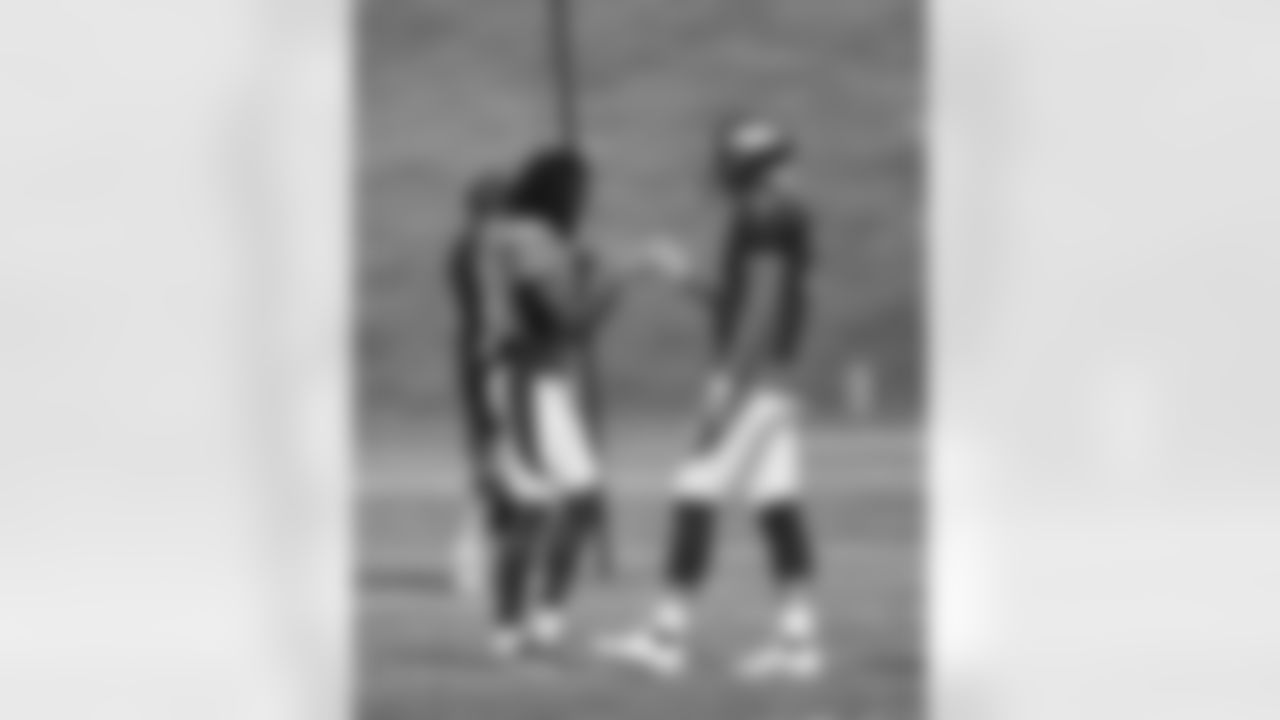
Jerry Jeudy fist-bumps Drew Lock during the seventh training camp practice at UCHealth Training Center on August 21, 2020. (Photo by Ben Swanson)
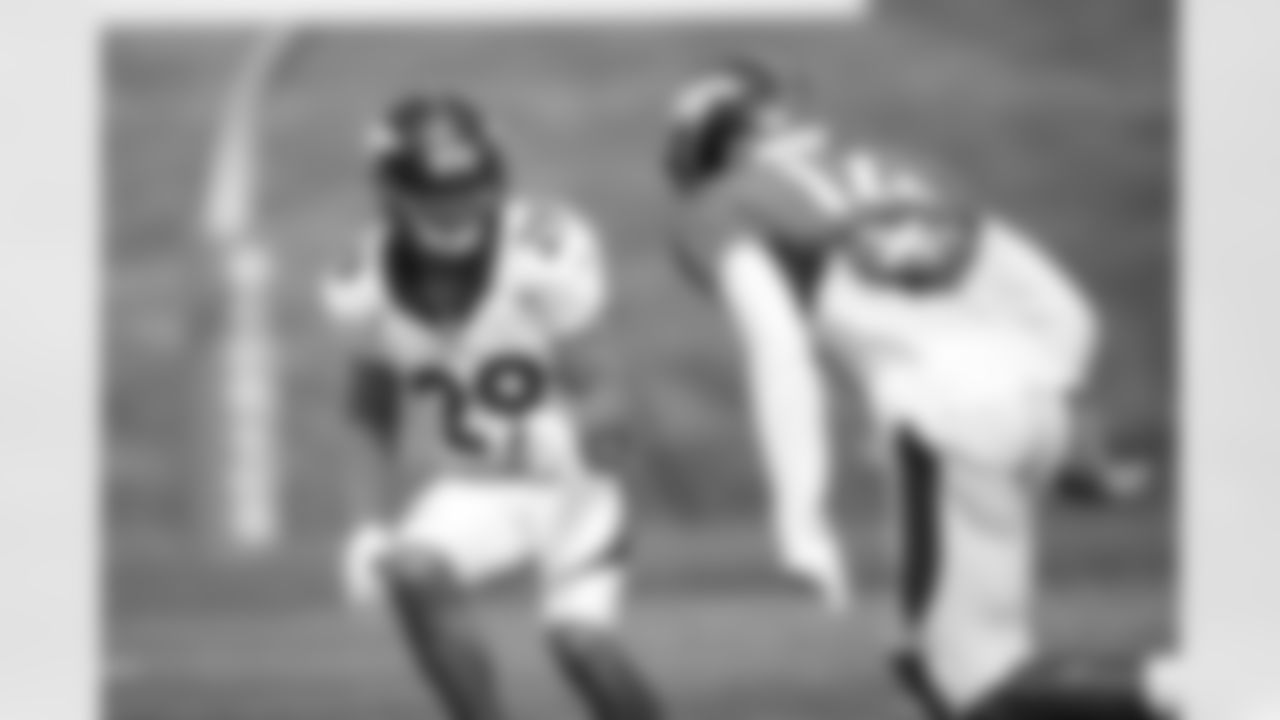
Bryce Callahan prepares to defend Courtland Sutton during the seventh training camp practice at UCHealth Training Center on August 21, 2020. (Photo by Ben Swanson)
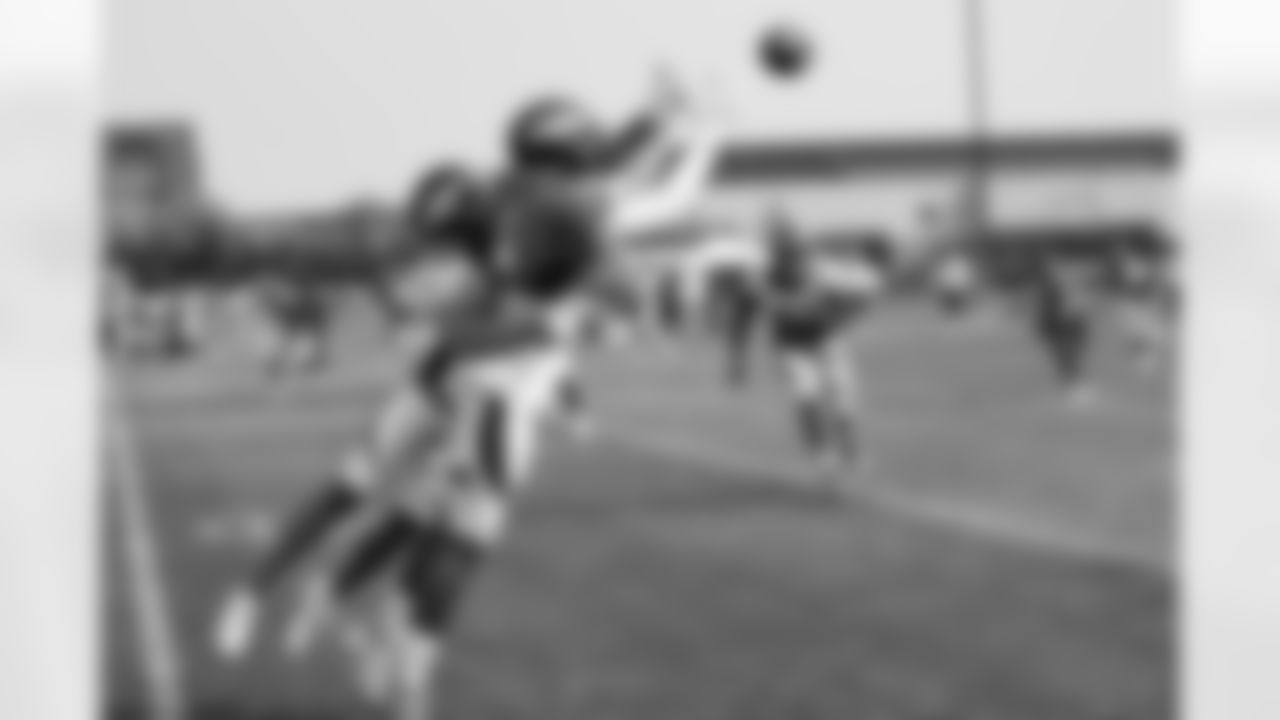
Bryce Callahan and Courtland Sutton during training camp at UCHealth Training Center in Centennial, CO, August 21, 2020. Photo by Gabriel Christus
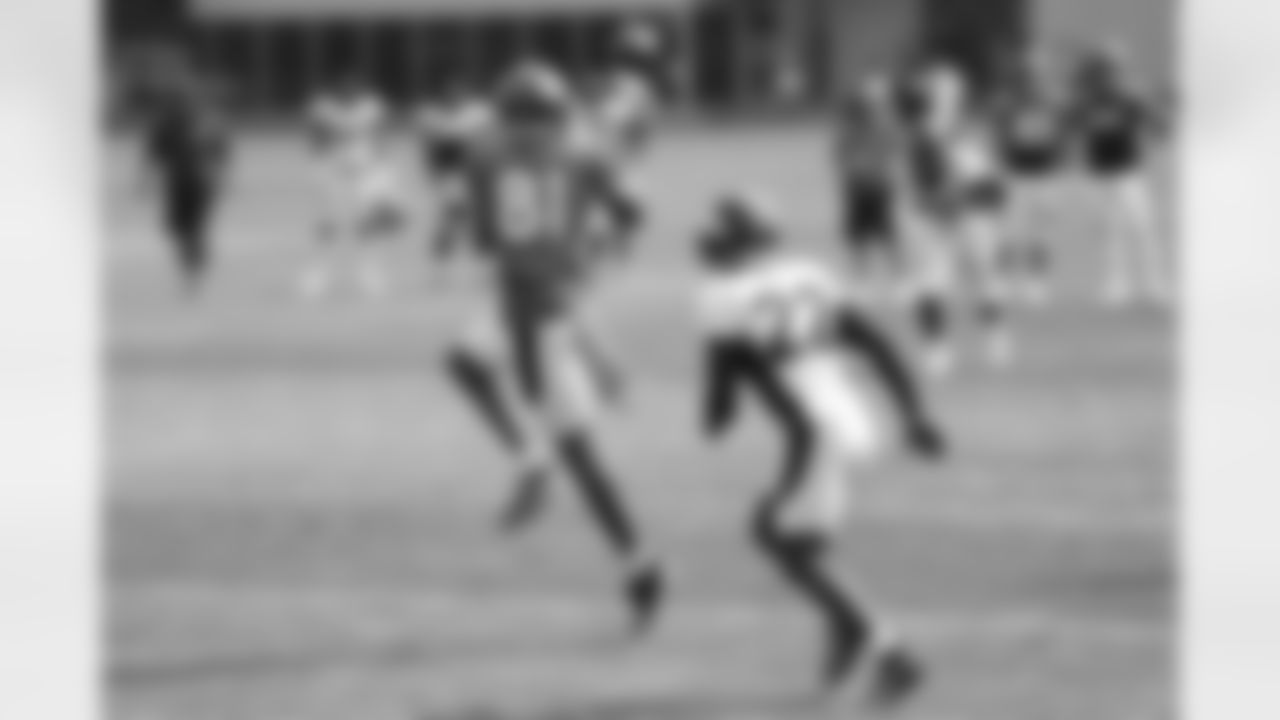
Tim Patrick and Kareem Jackson during training camp at UCHealth Training Center in Centennial, CO, August 21, 2020. Photo by Gabriel Christus
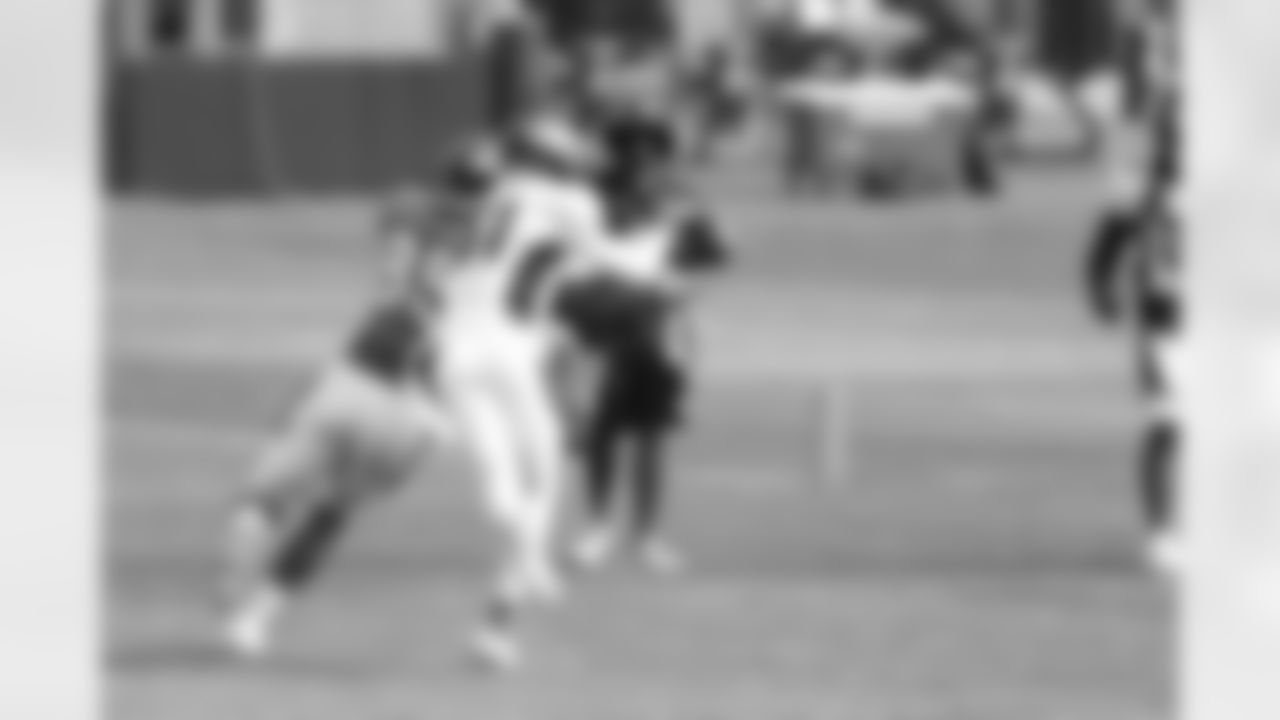
Albert Okwuegbunam and Justin Simmons during training camp at UCHealth Training Center in Centennial, CO, August 21, 2020. Photo by Gabriel Christus
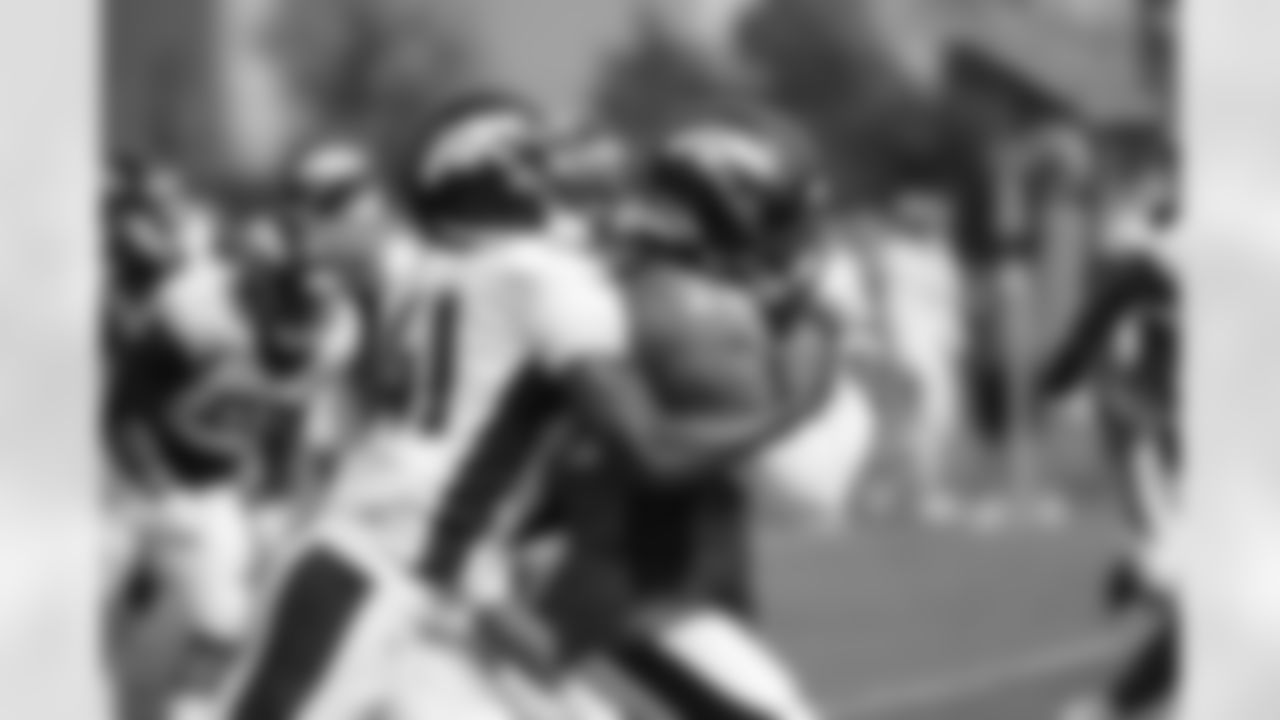
De'Vante Bausby and Royce Freeman during training camp at UCHealth Training Center in Centennial, CO, August 21, 2020. Photo by Gabriel Christus

Peyton Manning during training camp at UCHealth Training Center in Centennial, CO, August 21, 2020. Photo by Gabriel Christus
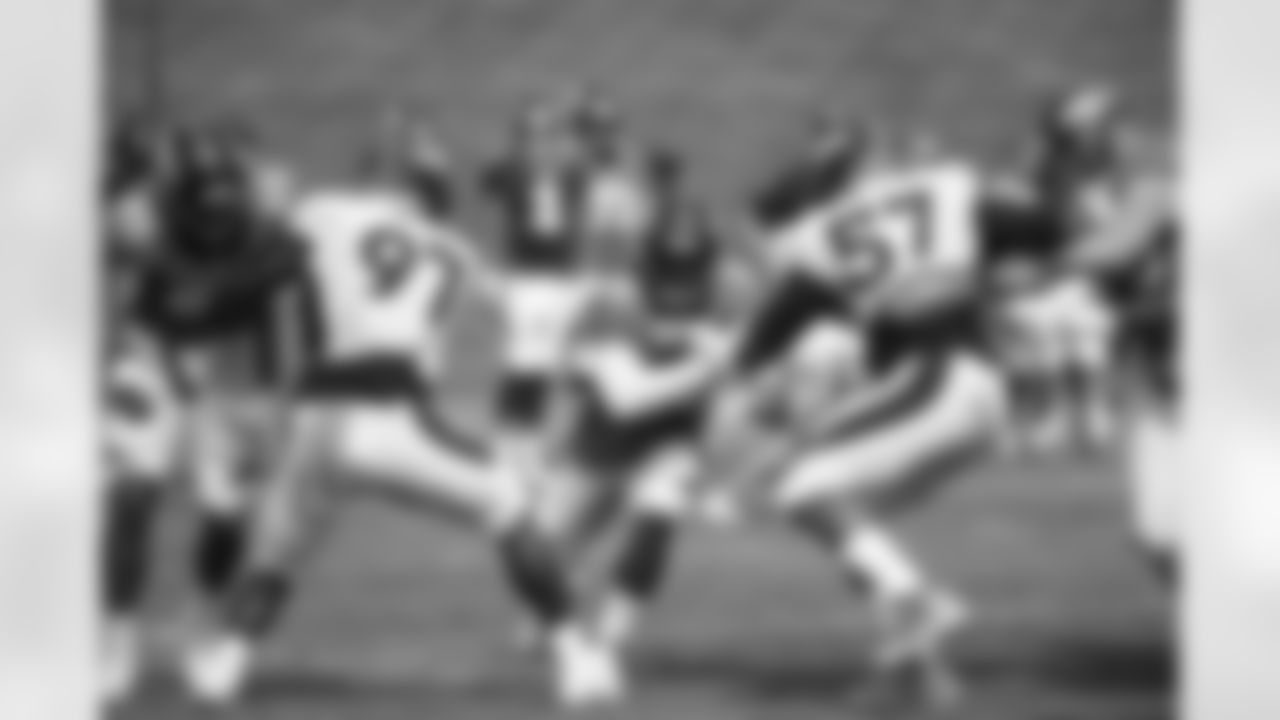
Royce Freeman, Jeremiah Attaochu and DeMarcus Walker during training camp at UCHealth Training Center in Centennial, CO, August 21, 2020. Photo by Gabriel Christus
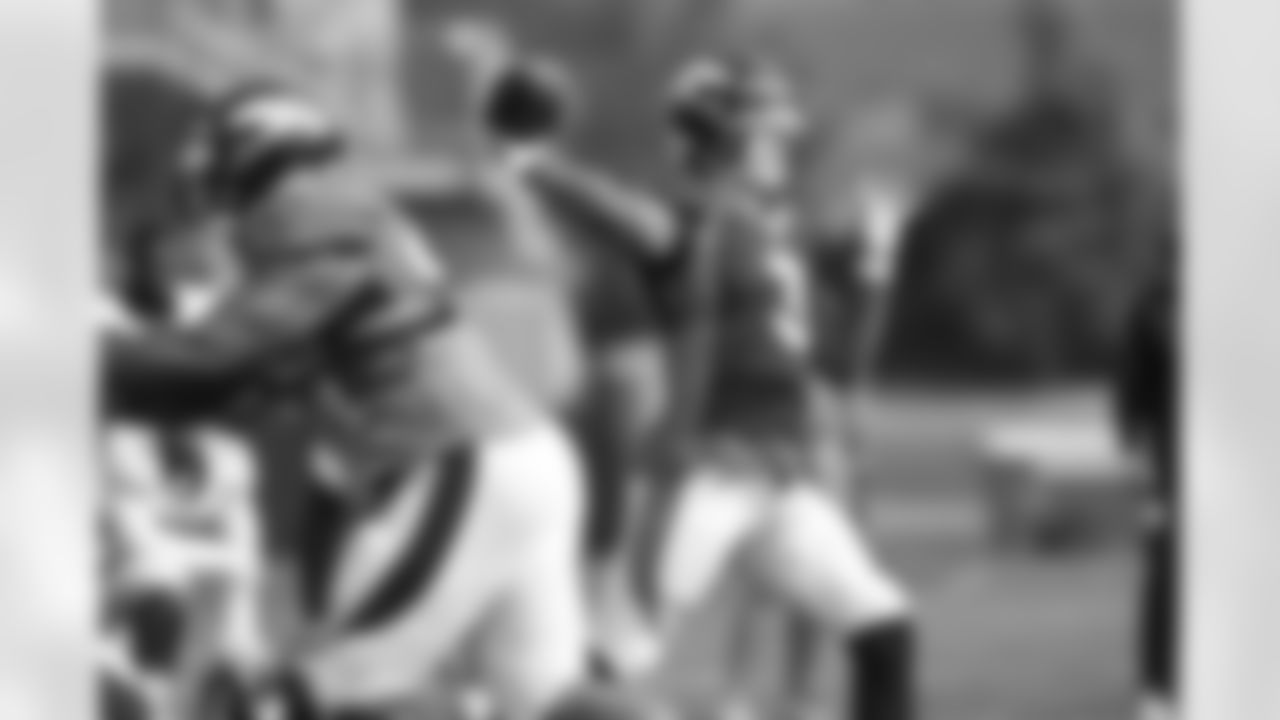
Drew Lock throws a pass during the seventh training camp practice at UCHealth Training Center on August 21, 2020. (Photo by Ben Swanson)
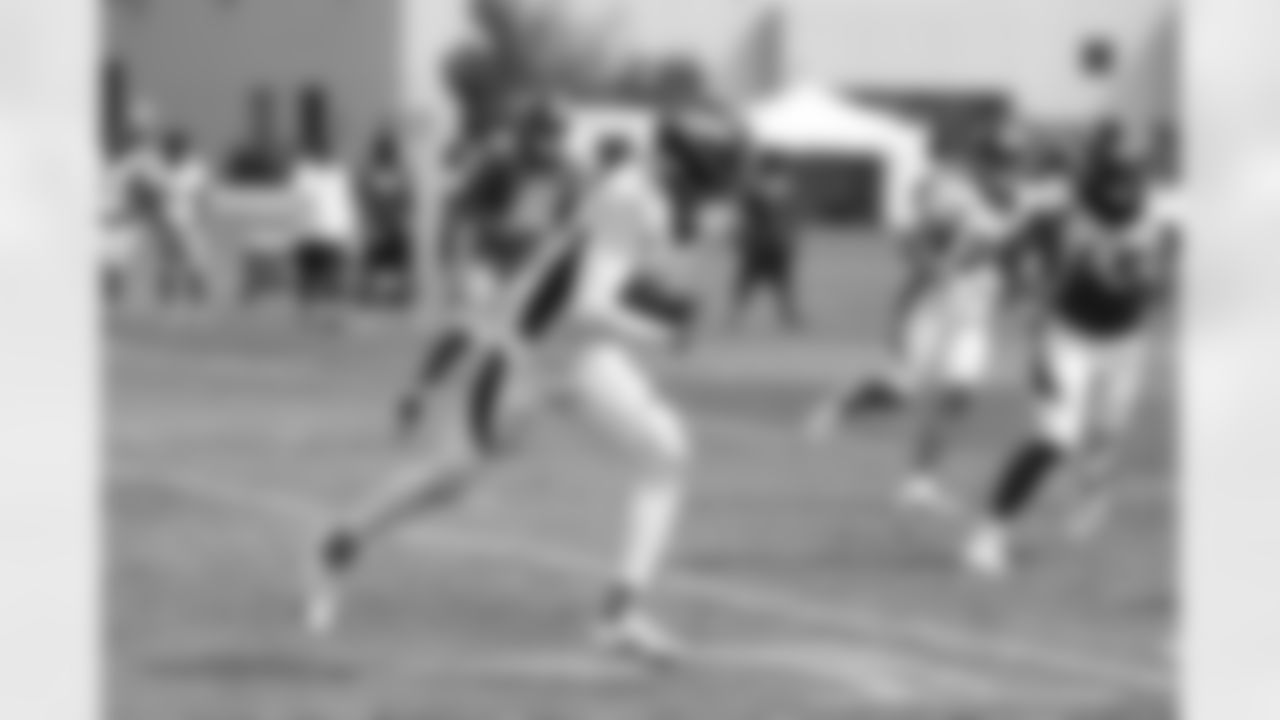
Justin Simmons during training camp at UCHealth Training Center in Centennial, CO, August 21, 2020. Photo by Gabriel Christus
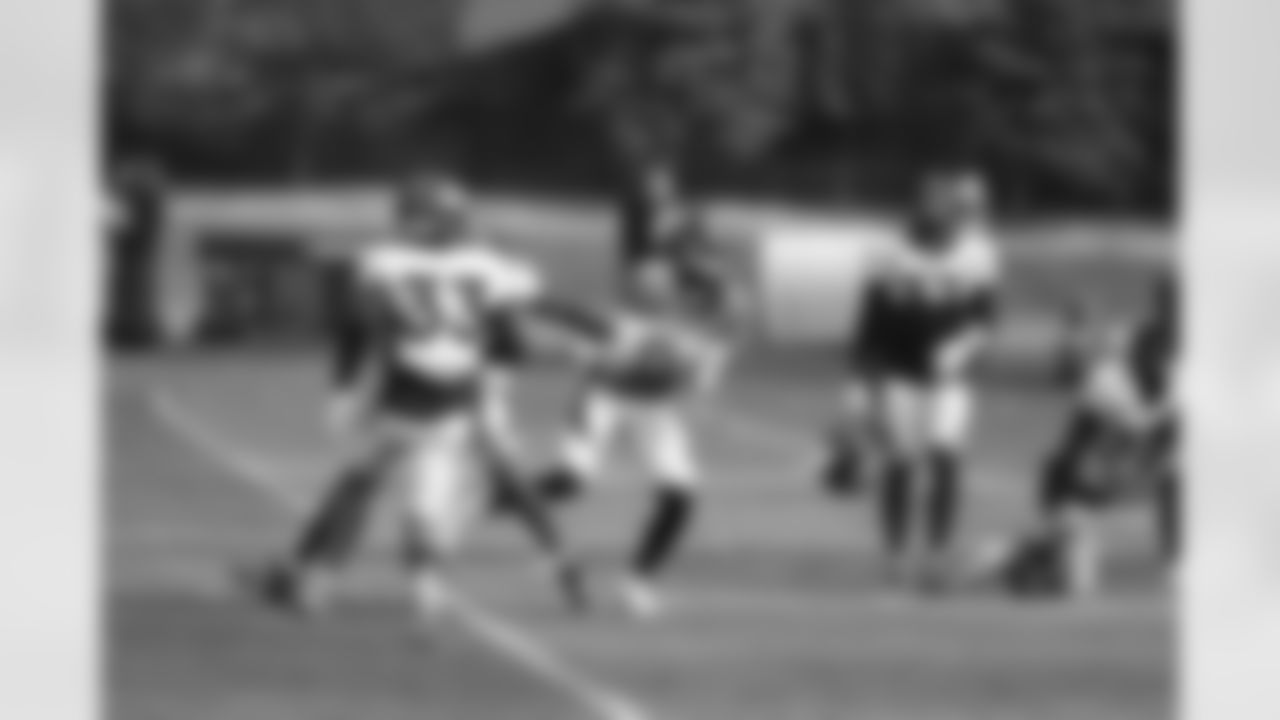
Fred Brown and Alijah Holder during training camp at UCHealth Training Center in Centennial, CO, August 21, 2020. Photo by Gabriel Christus
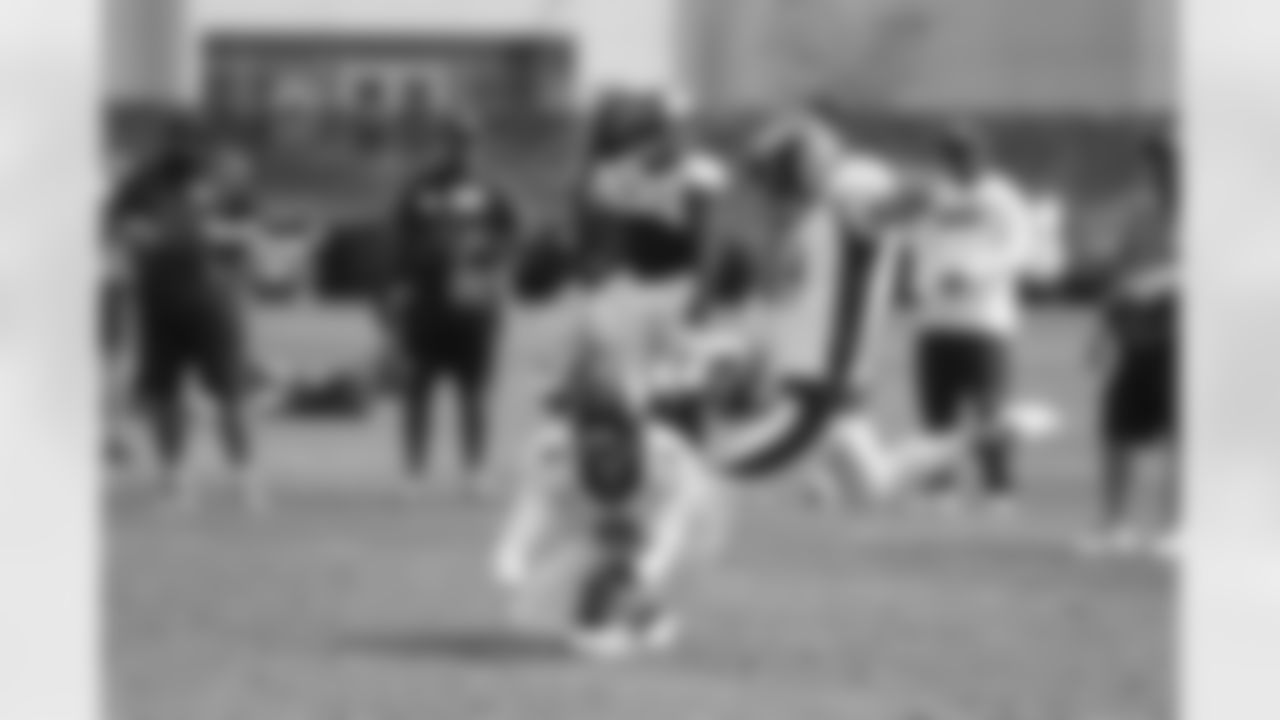
Sam Martin and Brandon McManus during training camp at UCHealth Training Center in Centennial, CO, August 21, 2020. Photo by Gabriel Christus
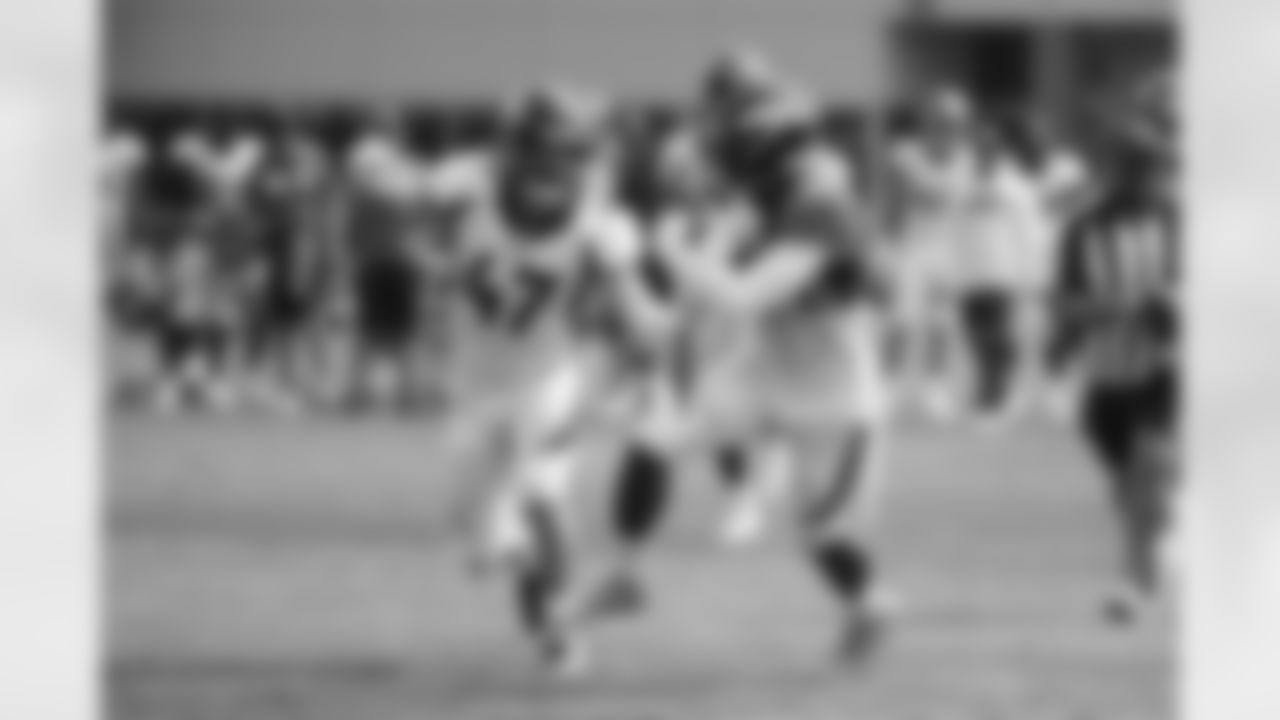
Josey Jewell and Courtland Sutton during training camp at UCHealth Training Center in Centennial, CO, August 21, 2020. Photo by Gabriel Christus
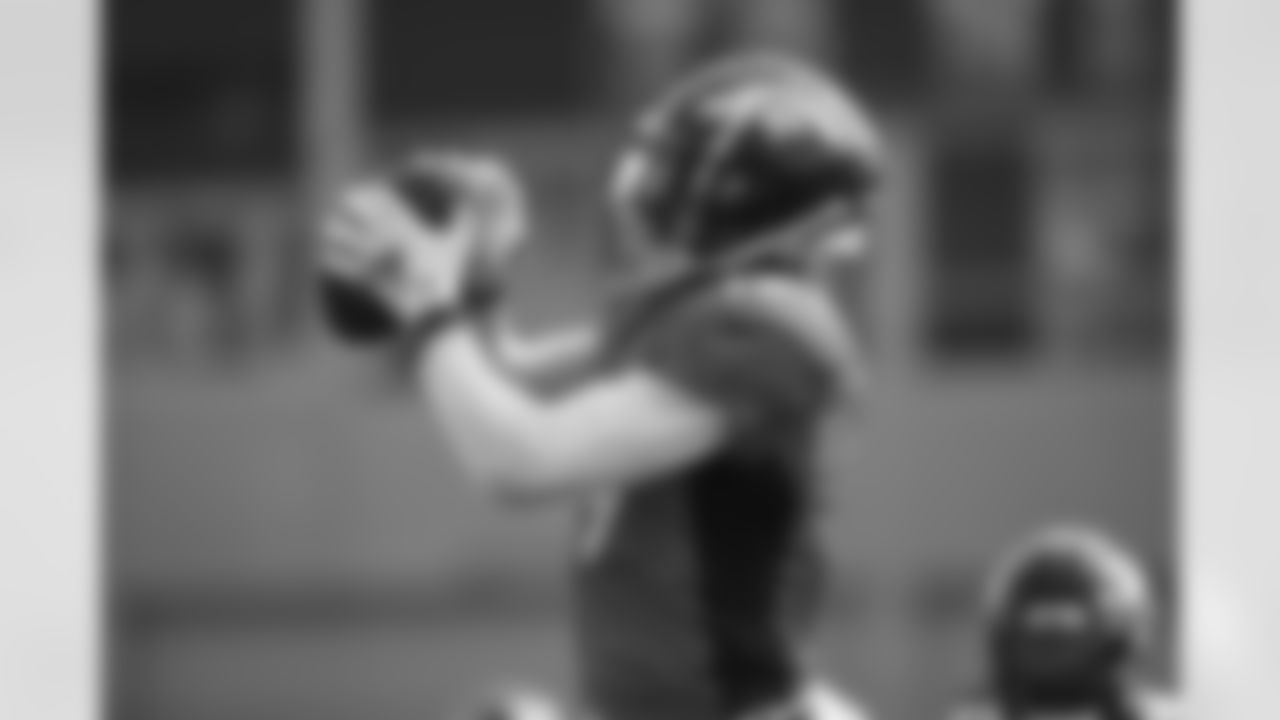
Fred Brown catches a pass during the seventh training camp practice at UCHealth Training Center on August 21, 2020. (Photo by Ben Swanson)
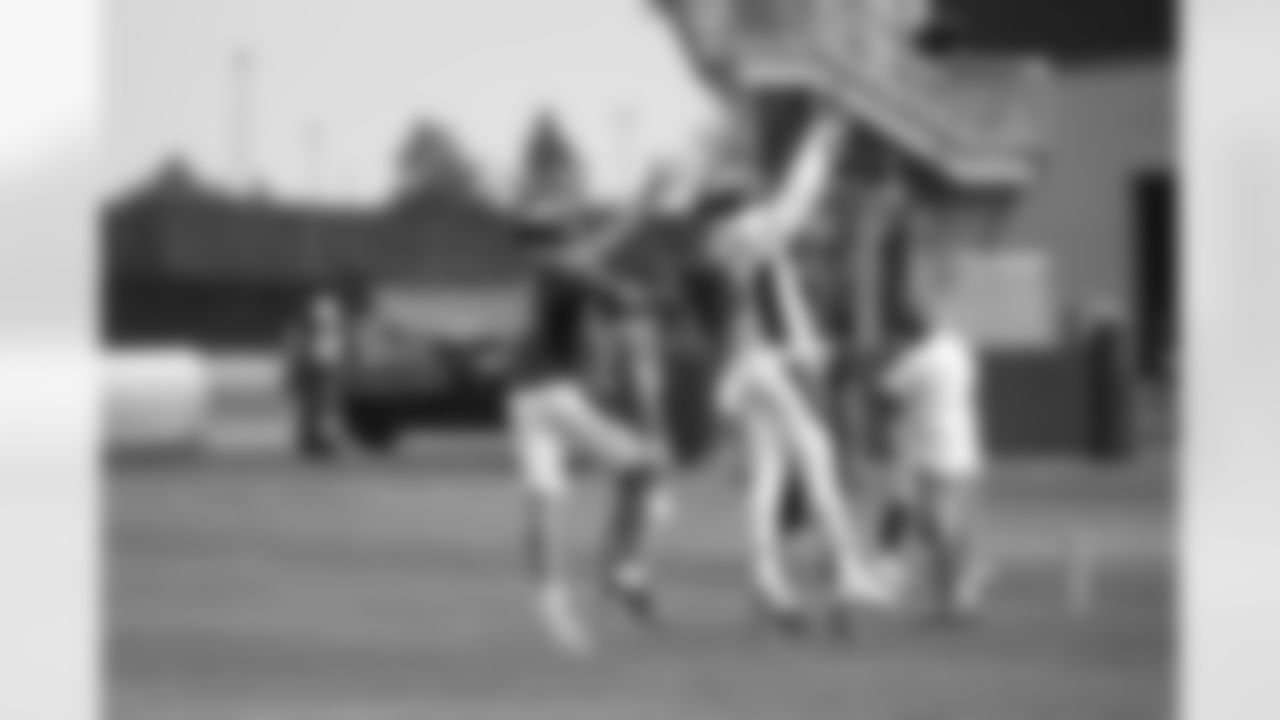
Tim Patrick and A.J. Bouye during training camp at UCHealth Training Center in Centennial, CO, August 21, 2020. Photo by Gabriel Christus
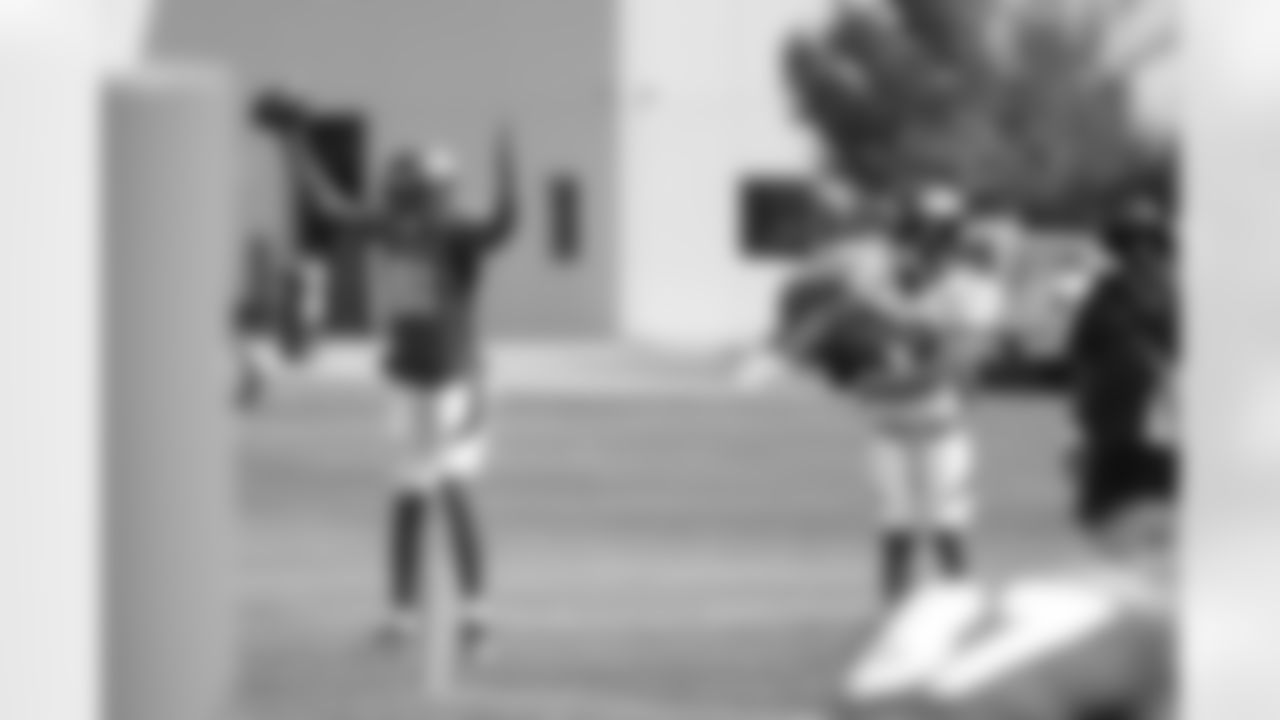
Tim Patrick and Bryce Callahan during training camp at UCHealth Training Center in Centennial, CO, August 21, 2020. Photo by Gabriel Christus
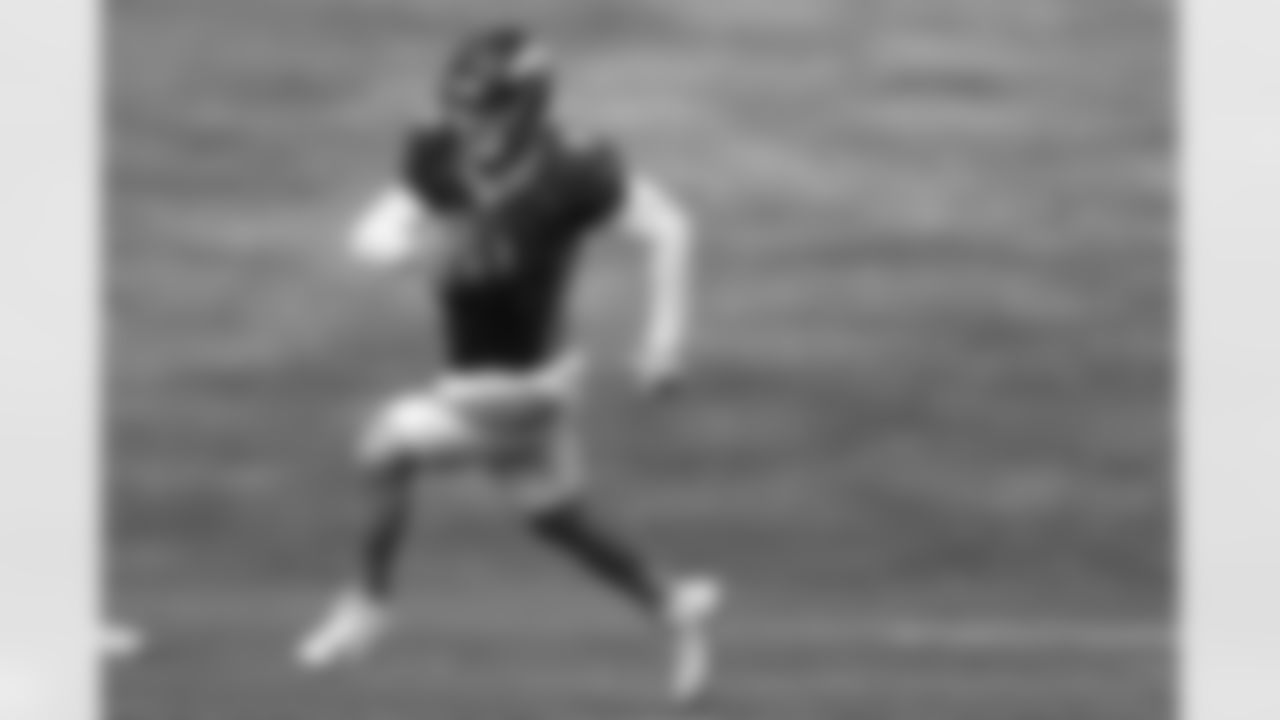
Jeff Driskel during training camp at UCHealth Training Center in Centennial, CO, August 21, 2020. Photo by Gabriel Christus
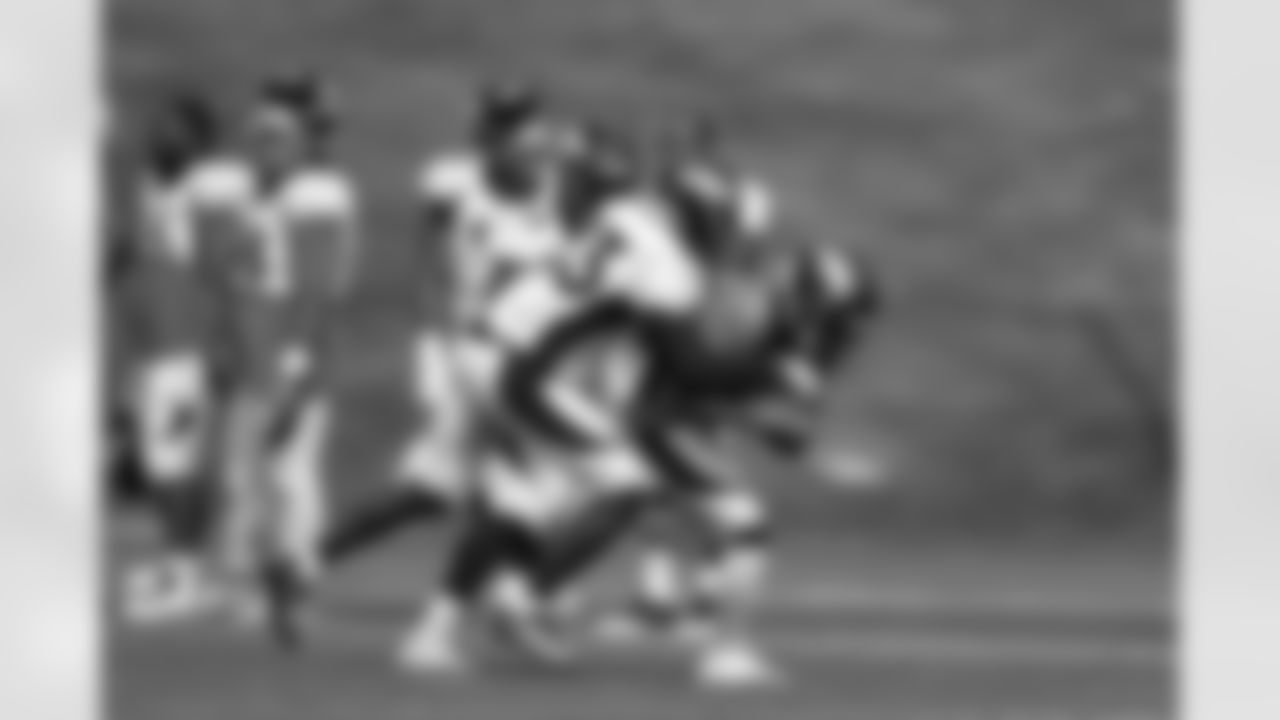
Diontae Spencer and Michael Ojemudia during training camp at UCHealth Training Center in Centennial, CO, August 21, 2020. Photo by Gabriel Christus
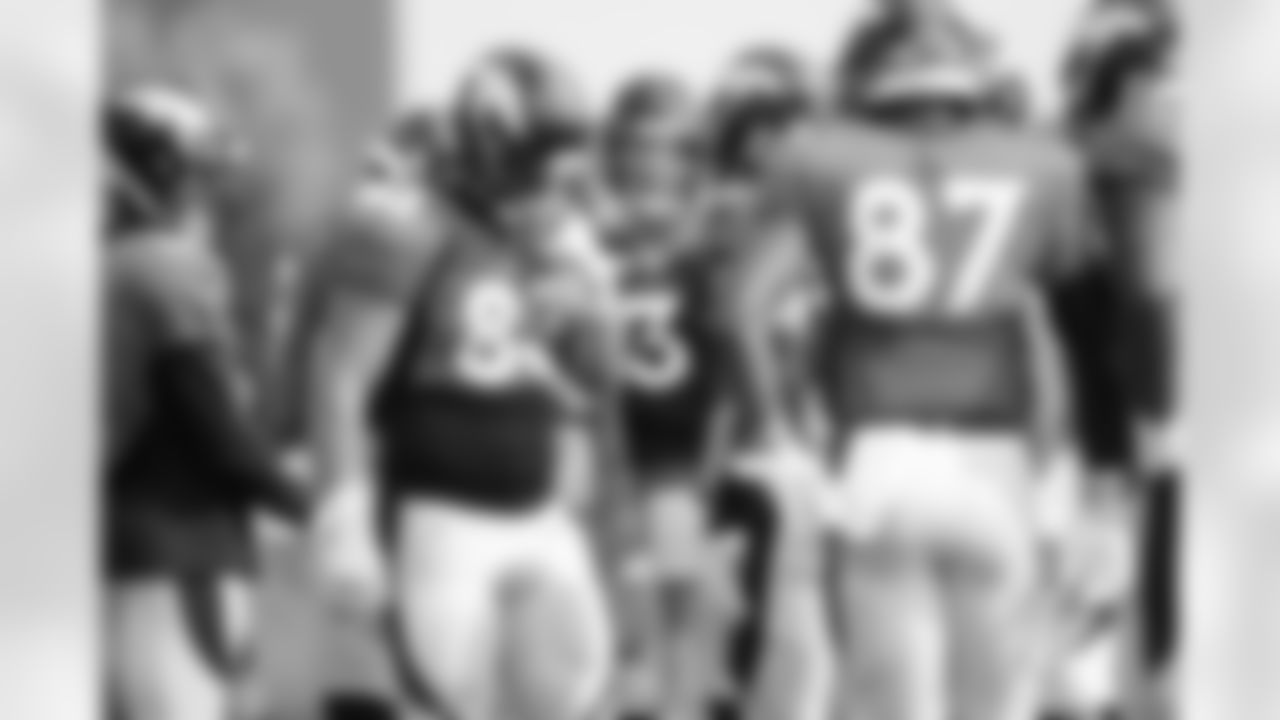
Drew Lock in the huddle during the seventh training camp practice at UCHealth Training Center on August 21, 2020. (Photo by Ben Swanson)
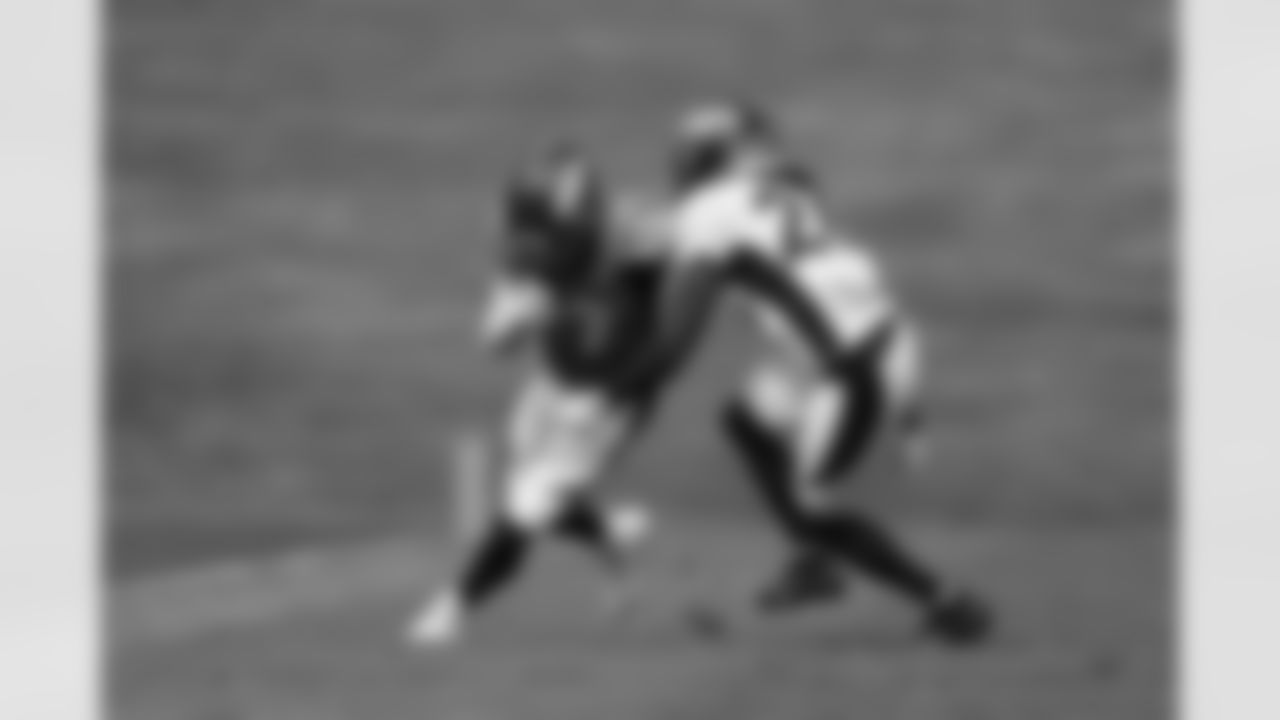
Fred Brown and Isaac Yiadom during training camp at UCHealth Training Center in Centennial, CO, August 21, 2020. Photo by Gabriel Christus
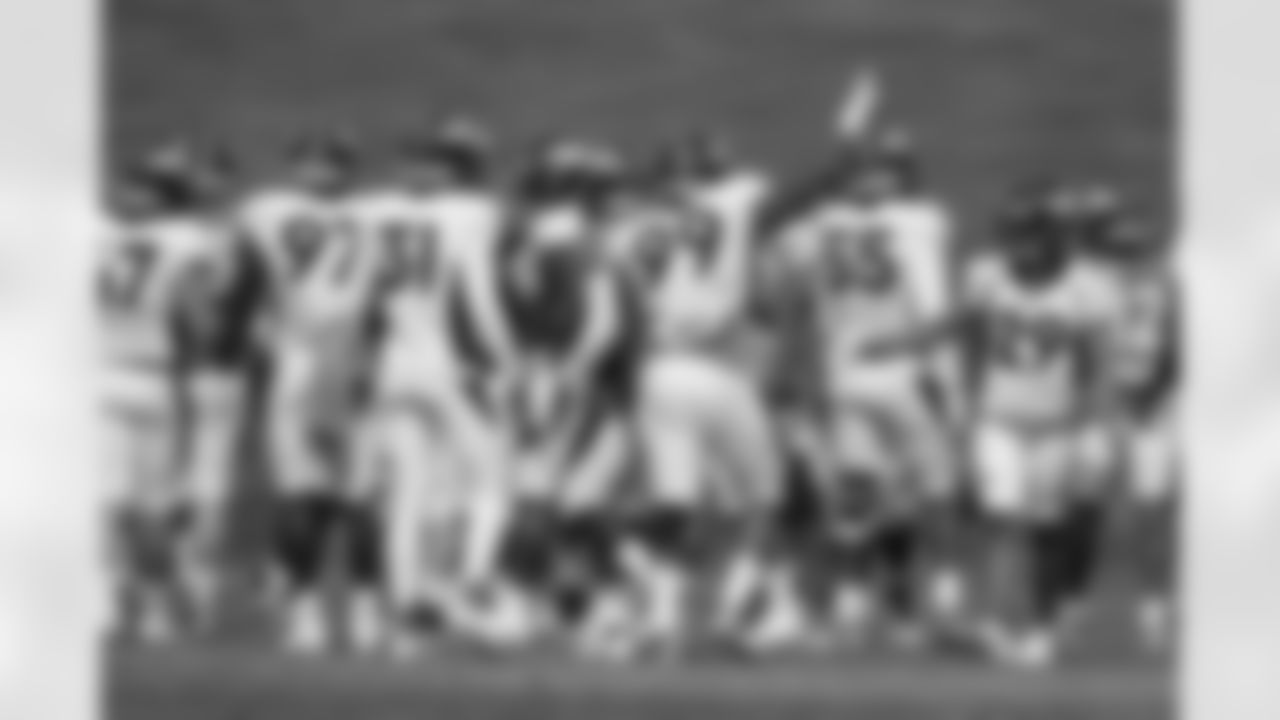
Jeremiah Attaochu, Justin Simmons, Jurrell Casey, Bryce Callahan during training camp at UCHealth Training Center in Centennial, CO, August 21, 2020. Photo by Gabriel Christus
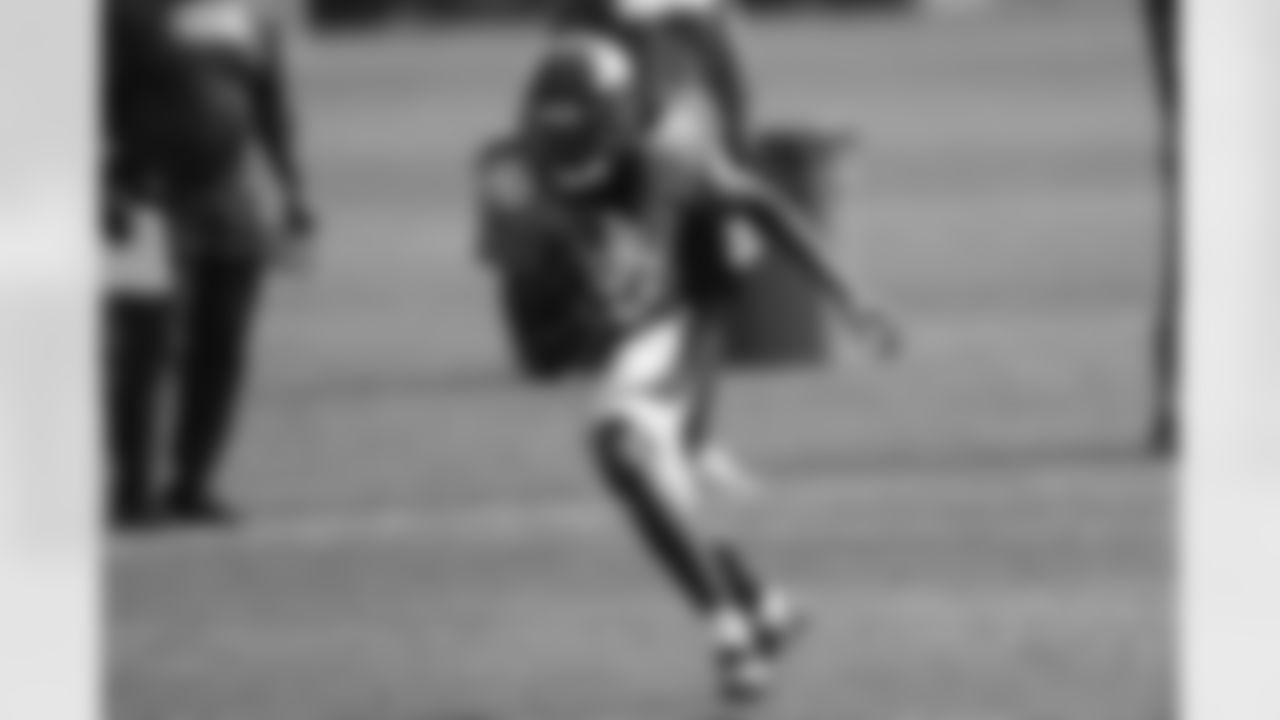
Jerry Jeudy during training camp at UCHealth Training Center in Centennial, CO, August 21, 2020. Photo by Gabriel Christus
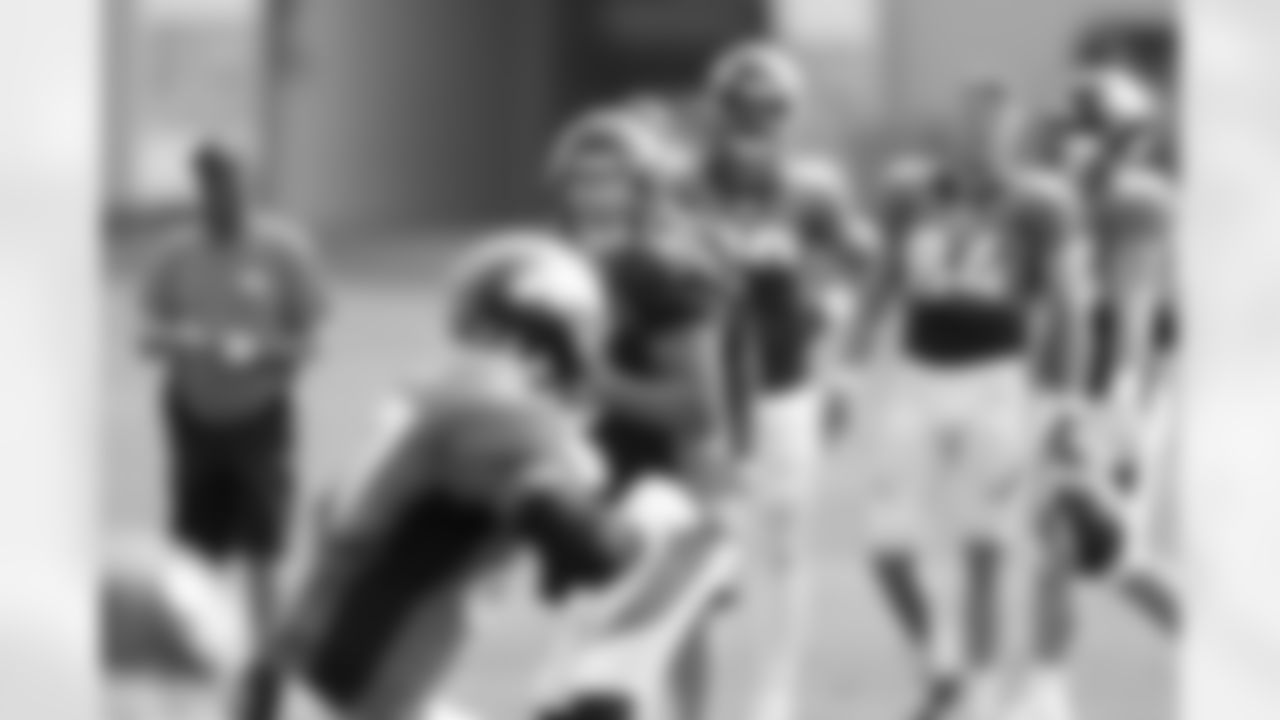
Drew Lock during training camp at UCHealth Training Center in Centennial, CO, August 21, 2020. Photo by Gabriel Christus

Peyton Manning and Steve Atwater watch practice during the Training Camp Live show during the seventh training camp practice at UCHealth Training Center on August 21, 2020. (Photo by Ben Swanson)
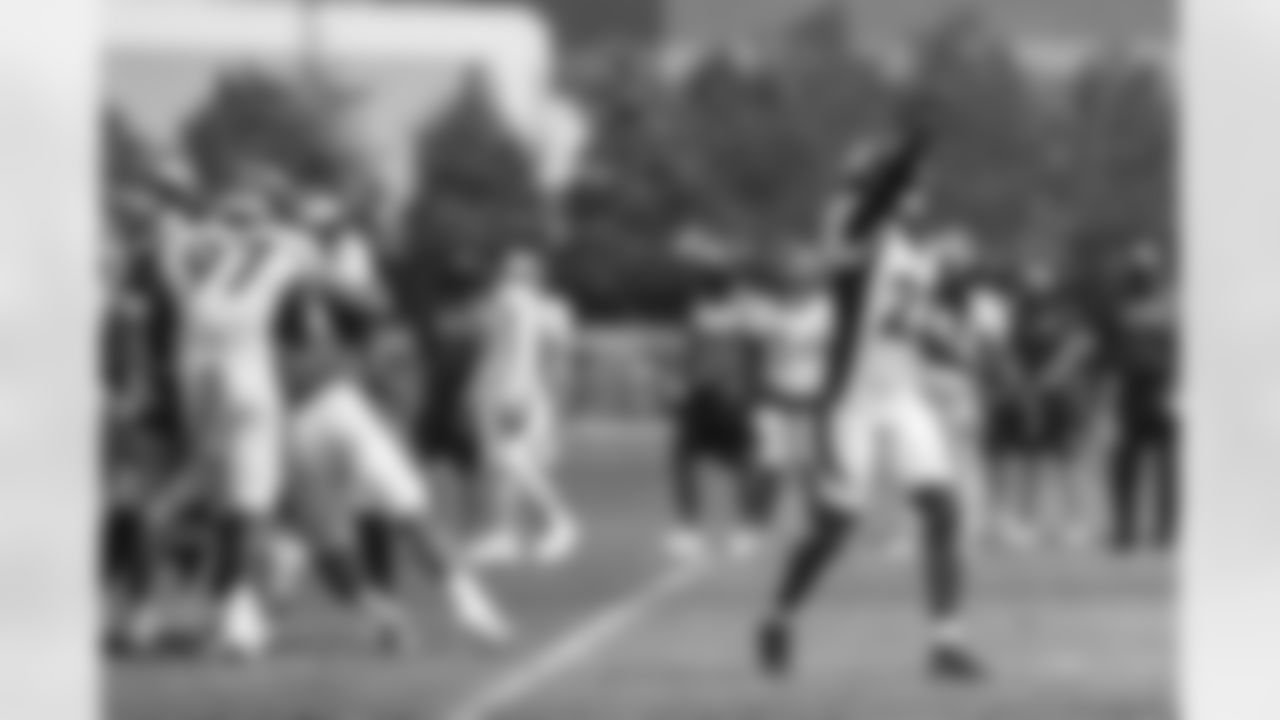
Kareem Jackson waves a finger after a defensive stop during the seventh training camp practice at UCHealth Training Center on August 21, 2020. (Photo by Ben Swanson)

Noah Fant during training camp at UCHealth Training Center in Centennial, CO, August 21, 2020. Photo by Gabriel Christus

Jake Butt makes a catch as P.J. Locke defends during the seventh training camp practice at UCHealth Training Center on August 21, 2020. (Photo by Ben Swanson)
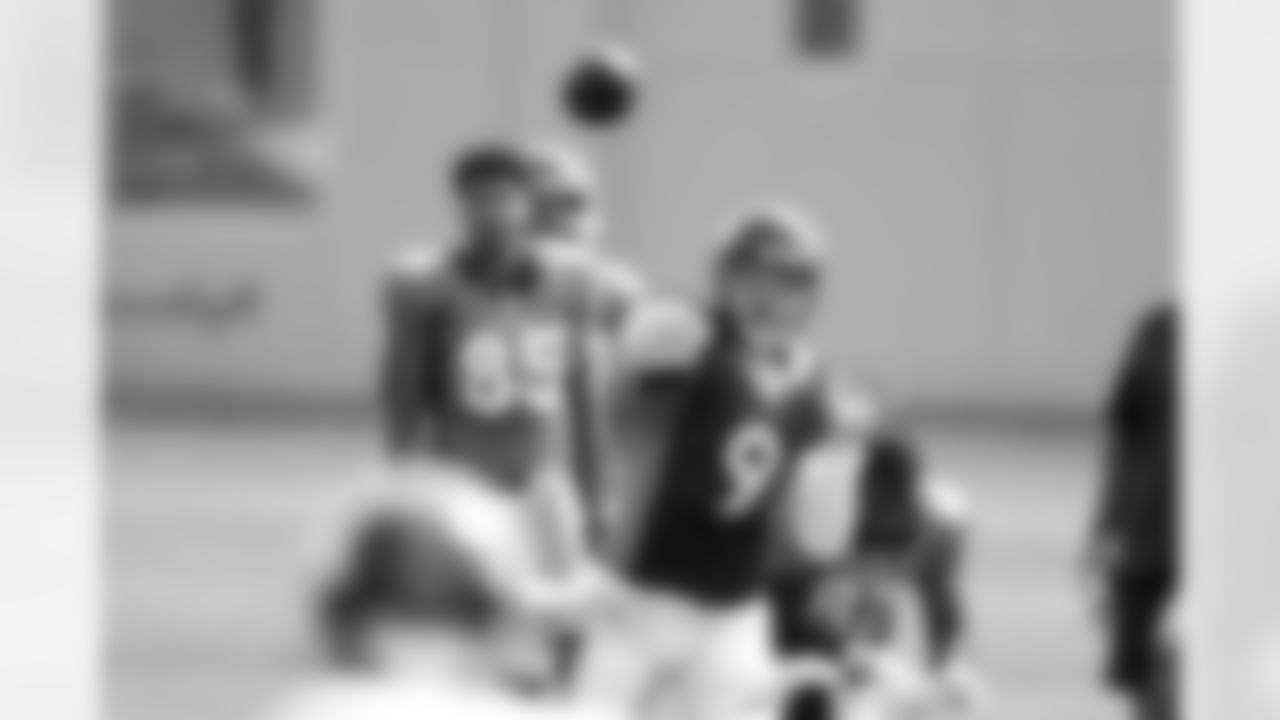
Jeff Driskel during training camp at UCHealth Training Center in Centennial, CO, August 21, 2020. Photo by Gabriel Christus
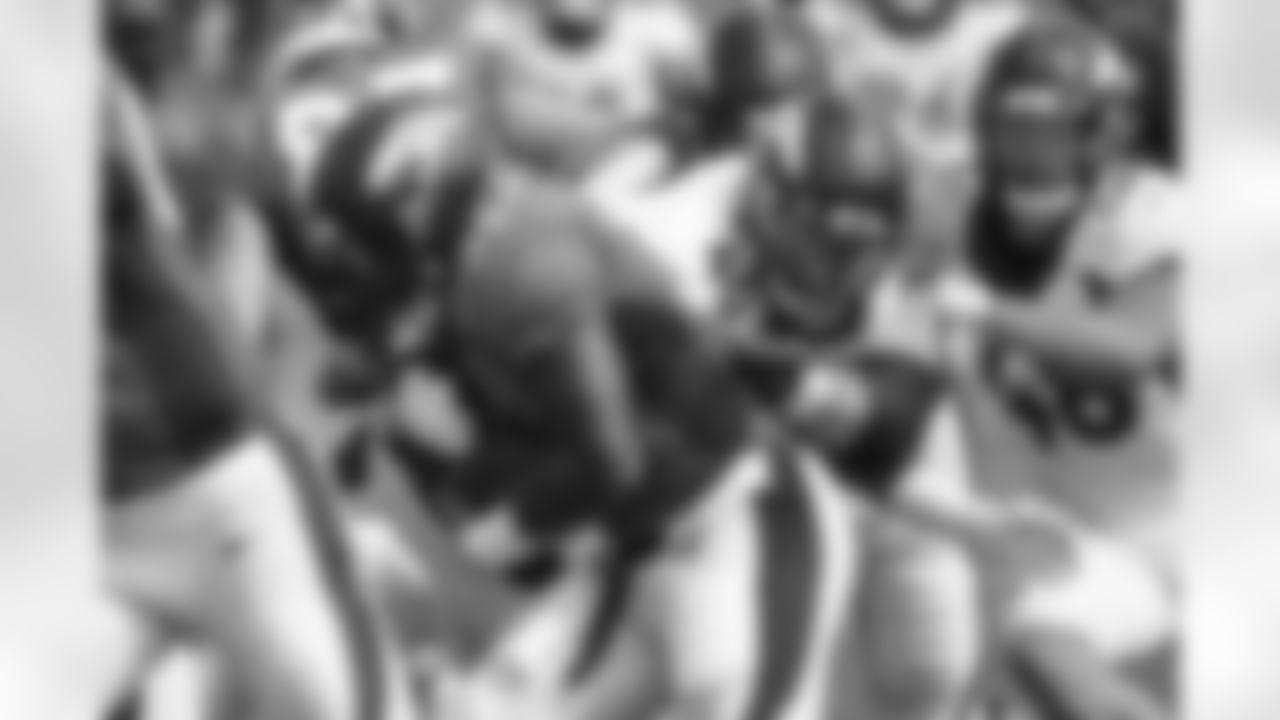
Justin Strnad makes contact with Jeremy Cox during the seventh training camp practice at UCHealth Training Center on August 21, 2020. (Photo by Ben Swanson)
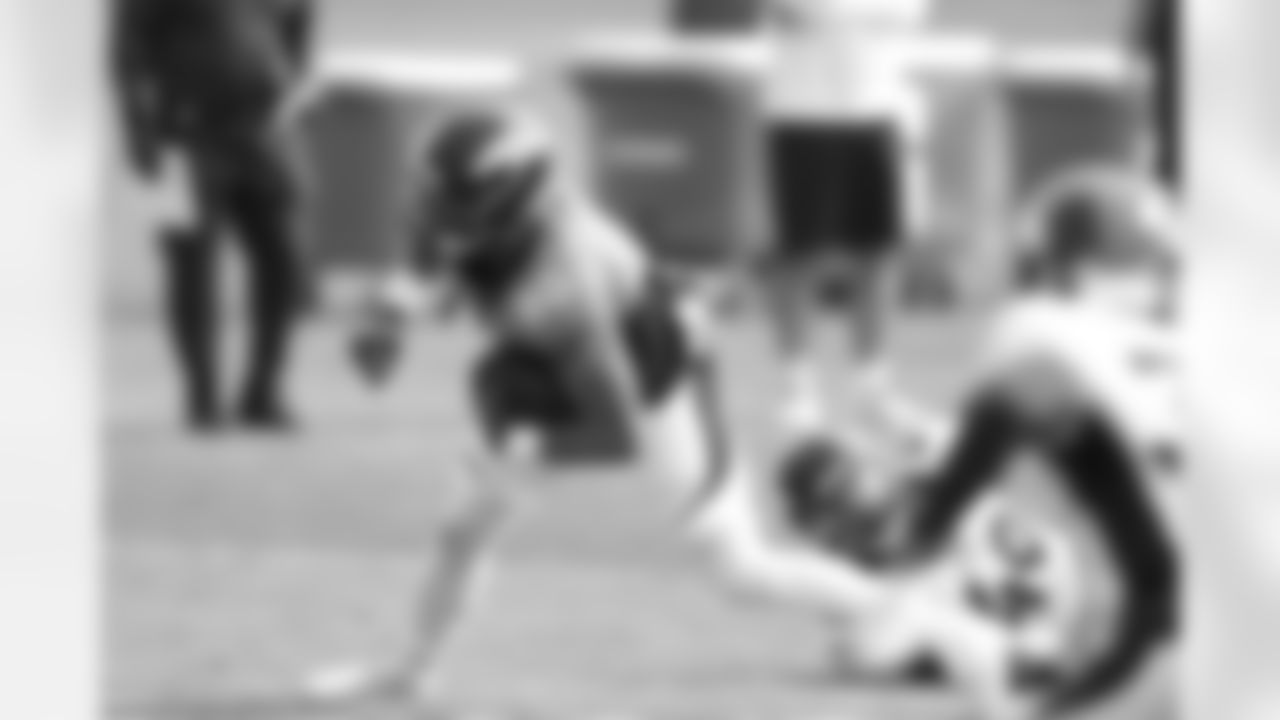
Jake Butt during training camp at UCHealth Training Center in Centennial, CO, August 21, 2020. Photo by Gabriel Christus
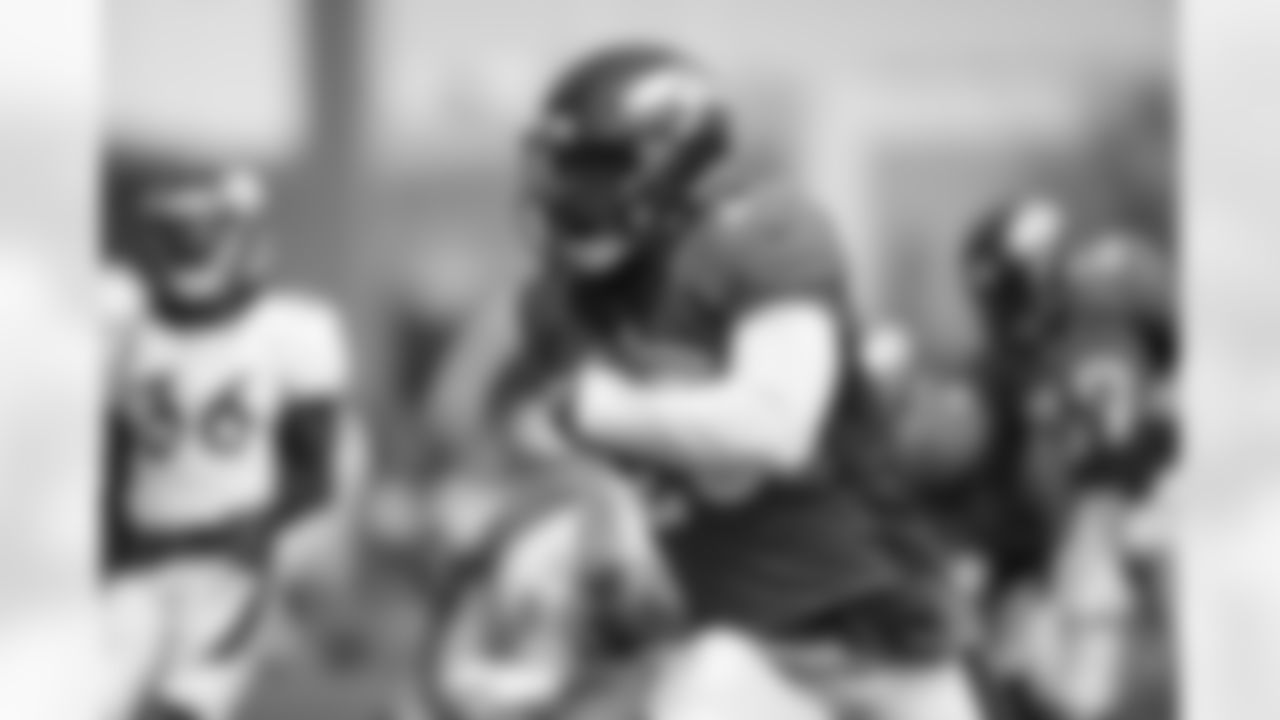
Royce Freeman runs with the ball during the seventh training camp practice at UCHealth Training Center on August 21, 2020. (Photo by Ben Swanson)
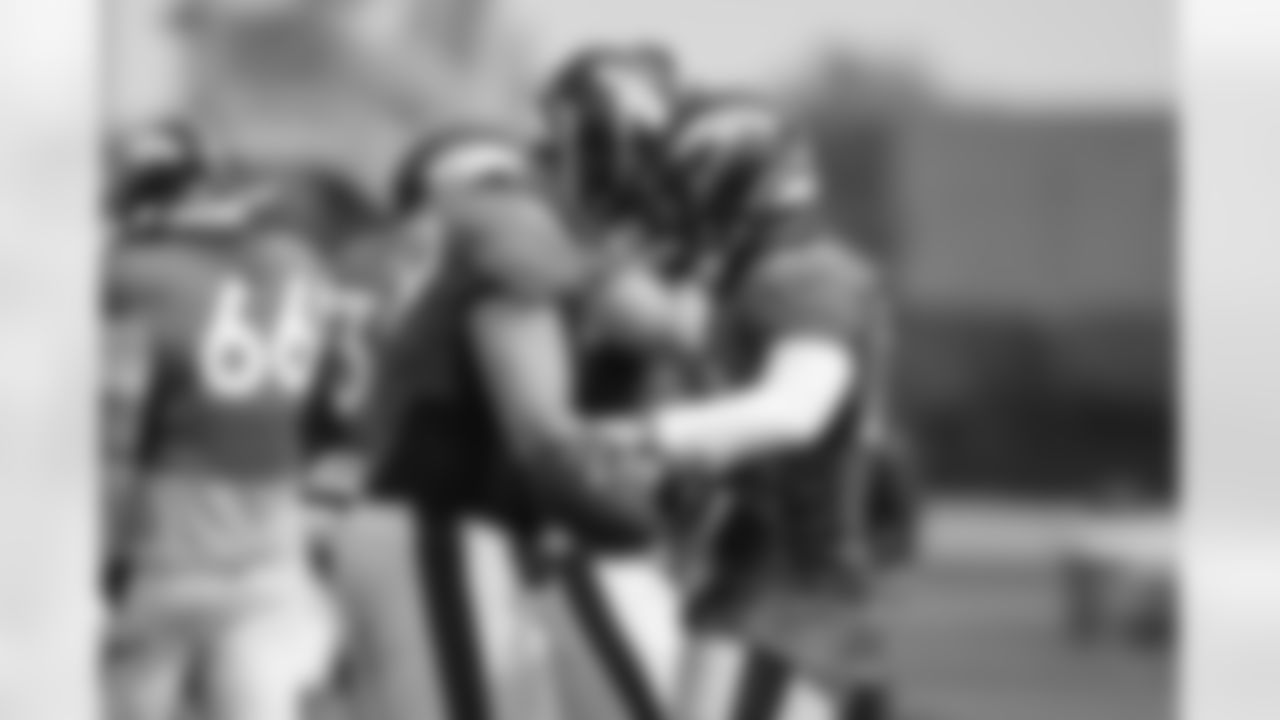
Royce Freeman and Jake Rodgers celebrate after a rushing touchdown during the seventh training camp practice at UCHealth Training Center on August 21, 2020. (Photo by Ben Swanson)
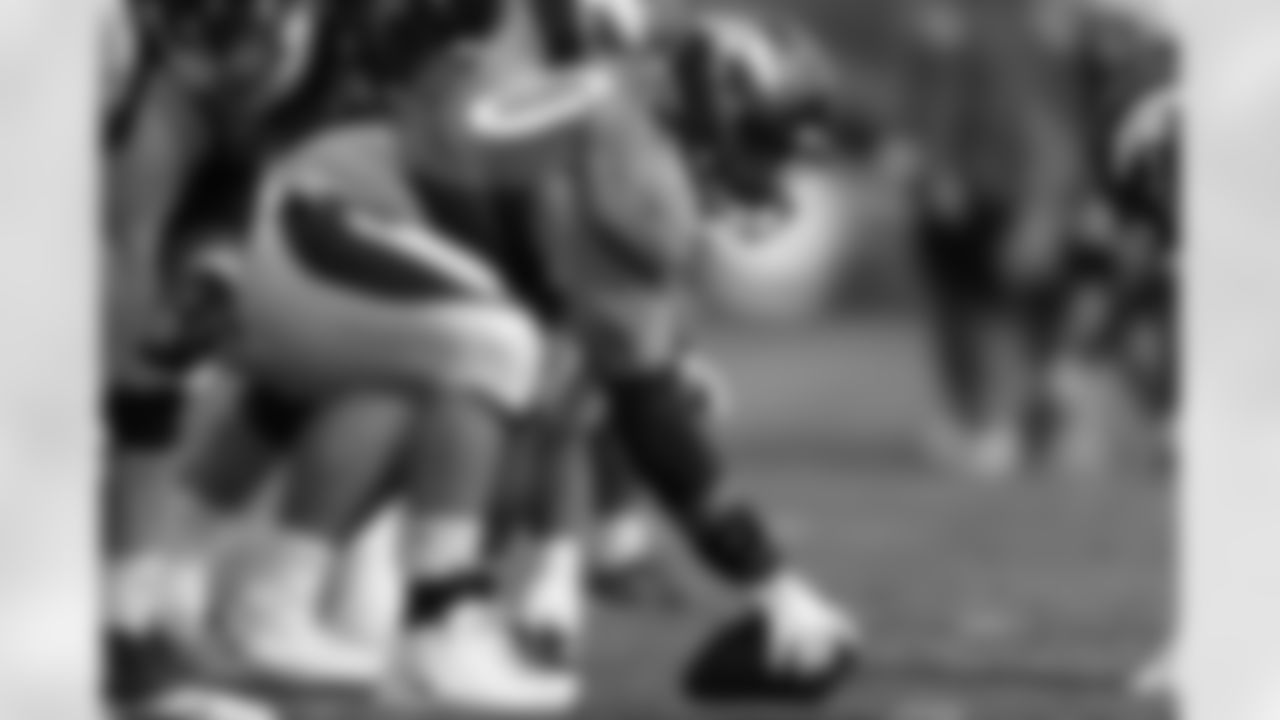
Patrick Morris during training camp at UCHealth Training Center in Centennial, CO, August 21, 2020. Photo by Gabriel Christus
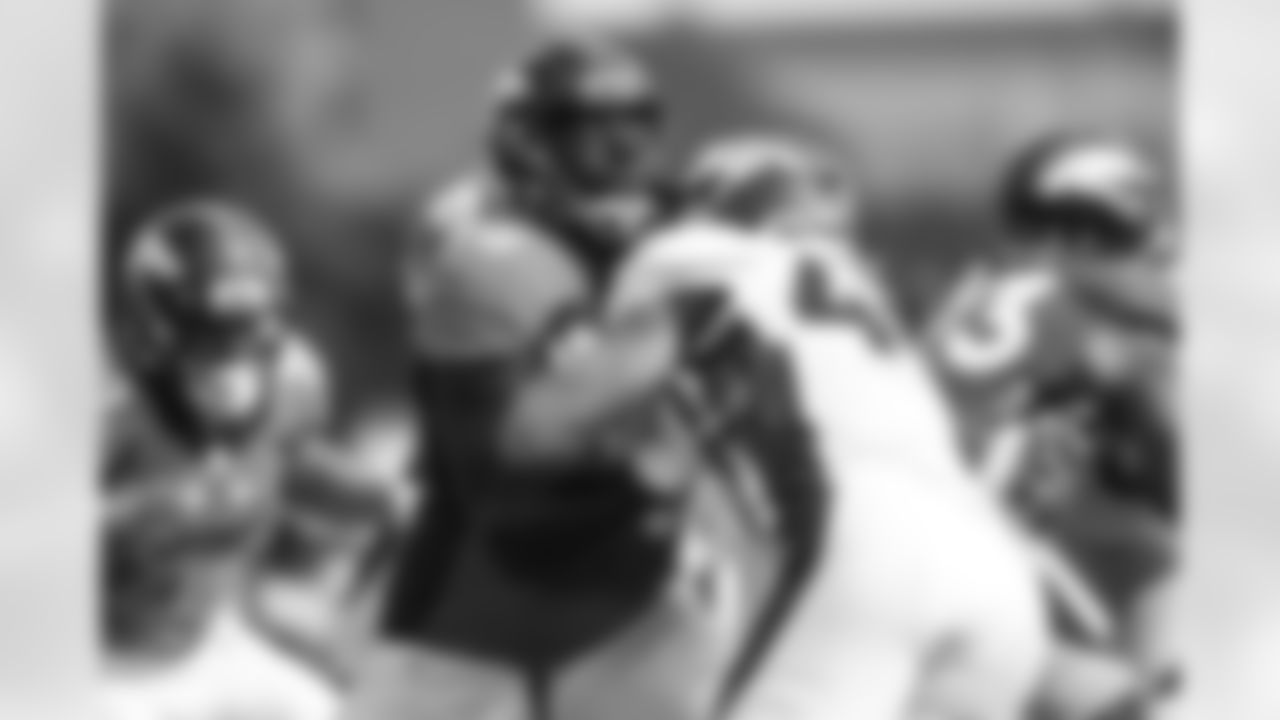
Demar Dotson blocks Derrek Tuszka during the seventh training camp practice at UCHealth Training Center on August 21, 2020. (Photo by Ben Swanson)
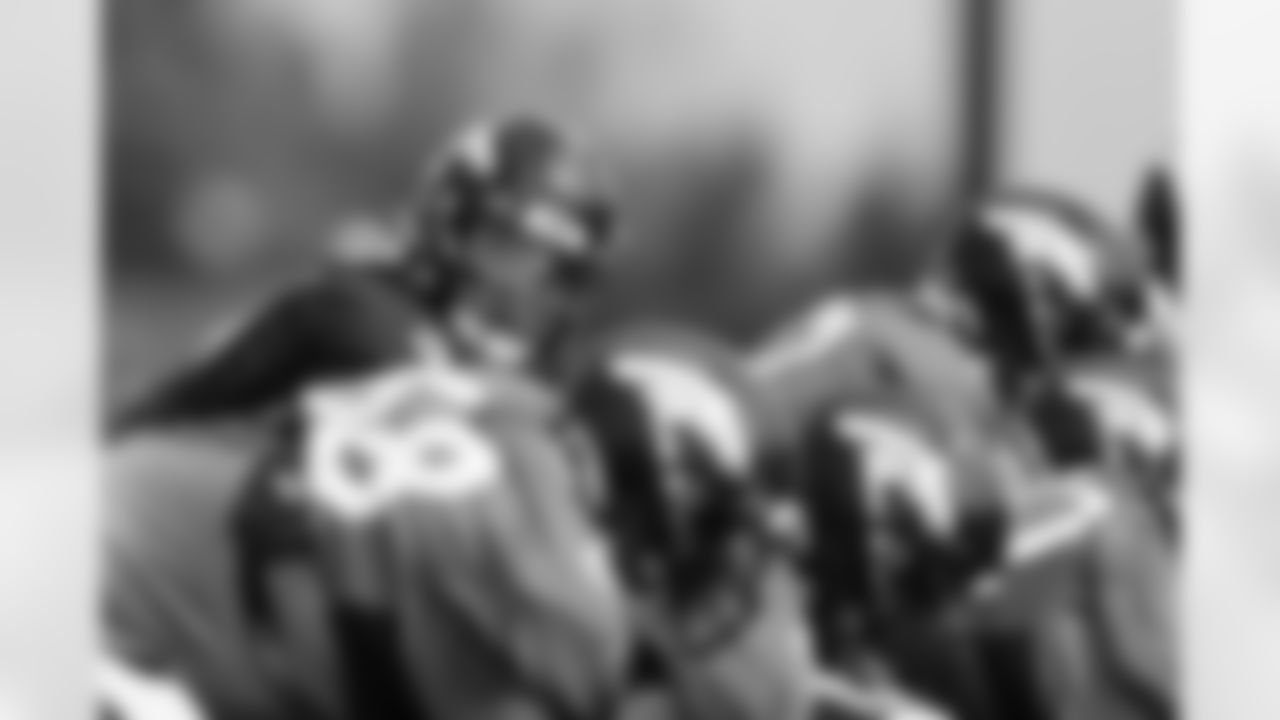
Drew Lock during training camp at UCHealth Training Center in Centennial, CO, August 21, 2020. Photo by Gabriel Christus
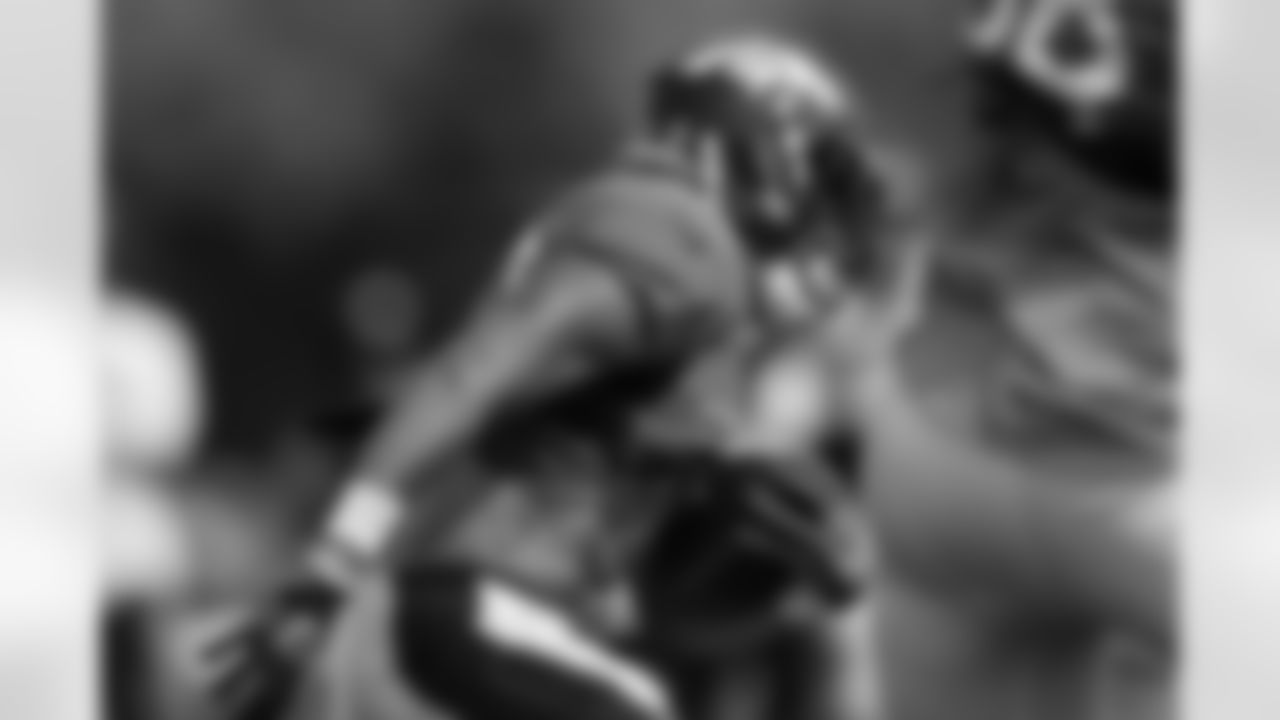
Phillip Lindsay during training camp at UCHealth Training Center in Centennial, CO, August 21, 2020. Photo by Gabriel Christus
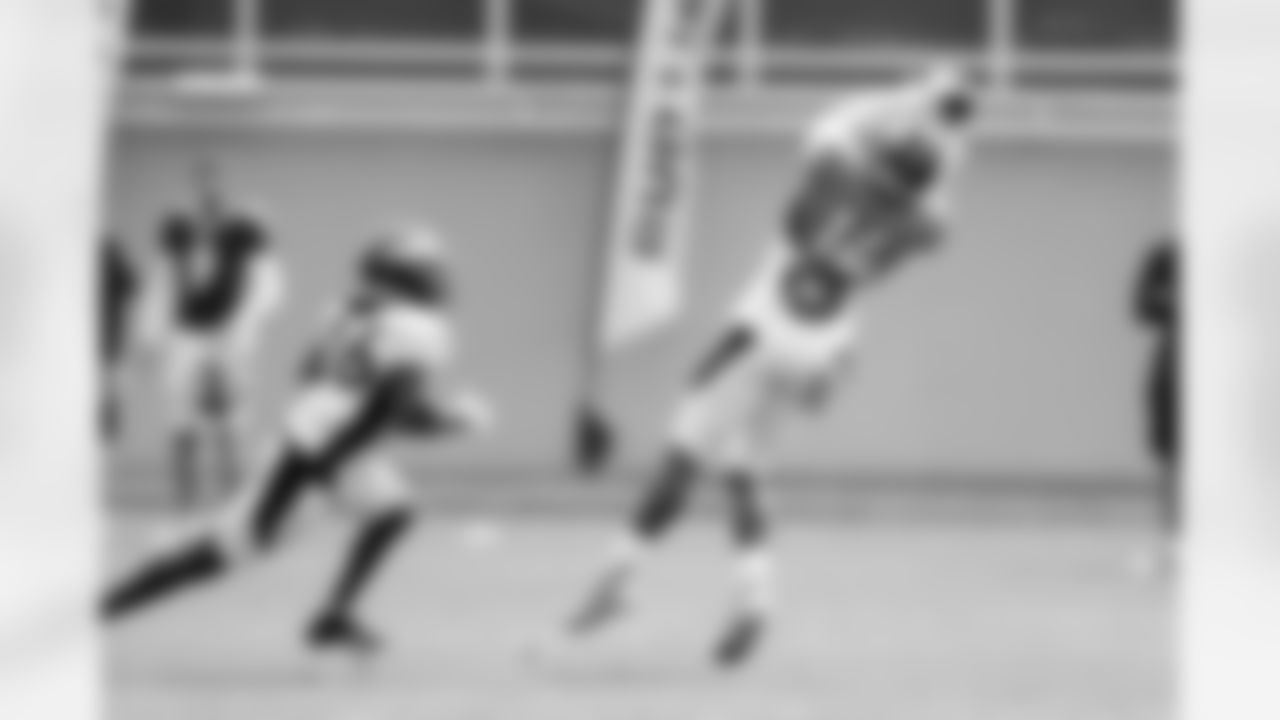
Isaac Yiadom and Courtland Sutton during training camp at UCHealth Training Center in Centennial, CO, August 21, 2020. Photo by Gabriel Christus
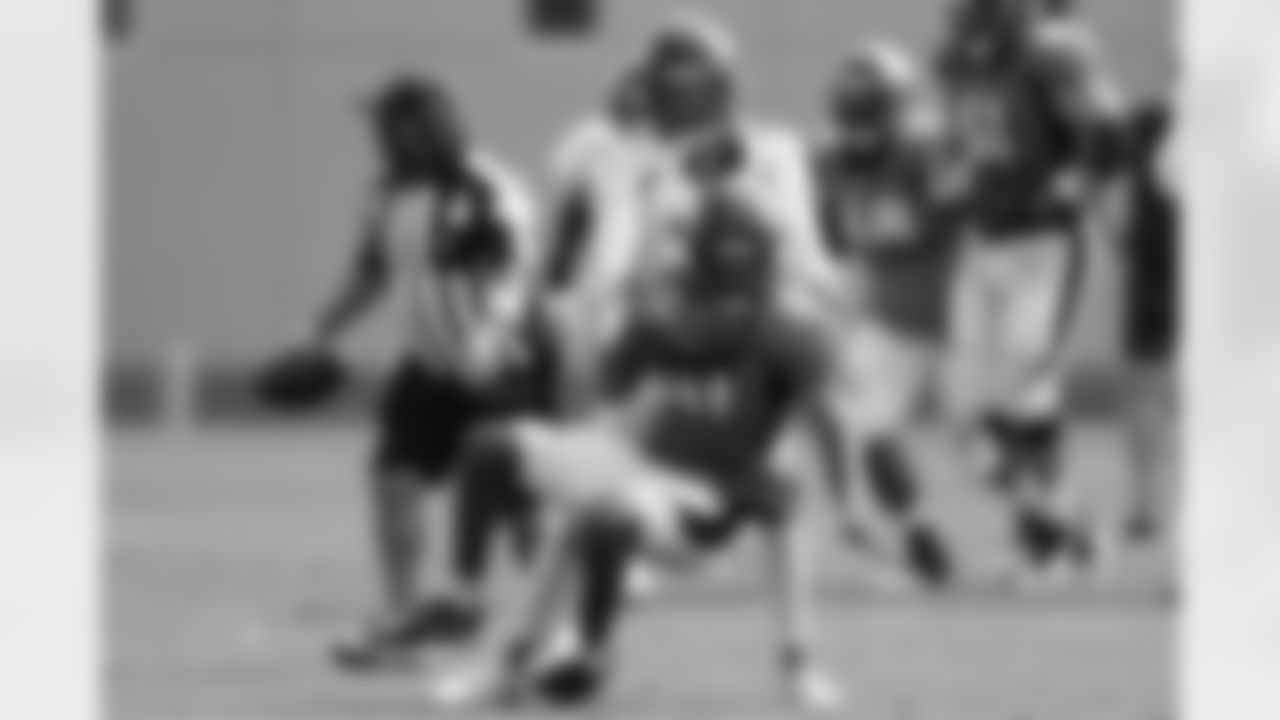
Tim Patrick and Justin Simmons during training camp at UCHealth Training Center in Centennial, CO, August 21, 2020. Photo by Gabriel Christus
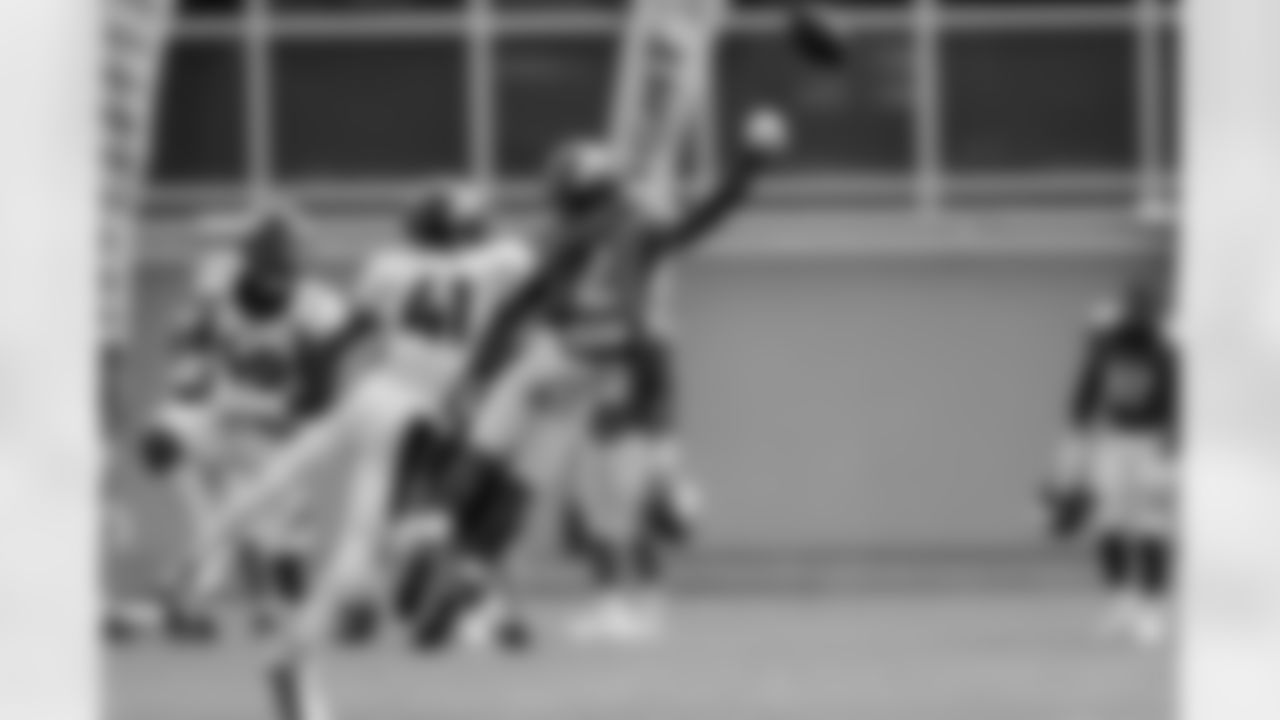
De'Vante Bausby and Kendall Hinton during training camp at UCHealth Training Center in Centennial, CO, August 21, 2020. Photo by Gabriel Christus
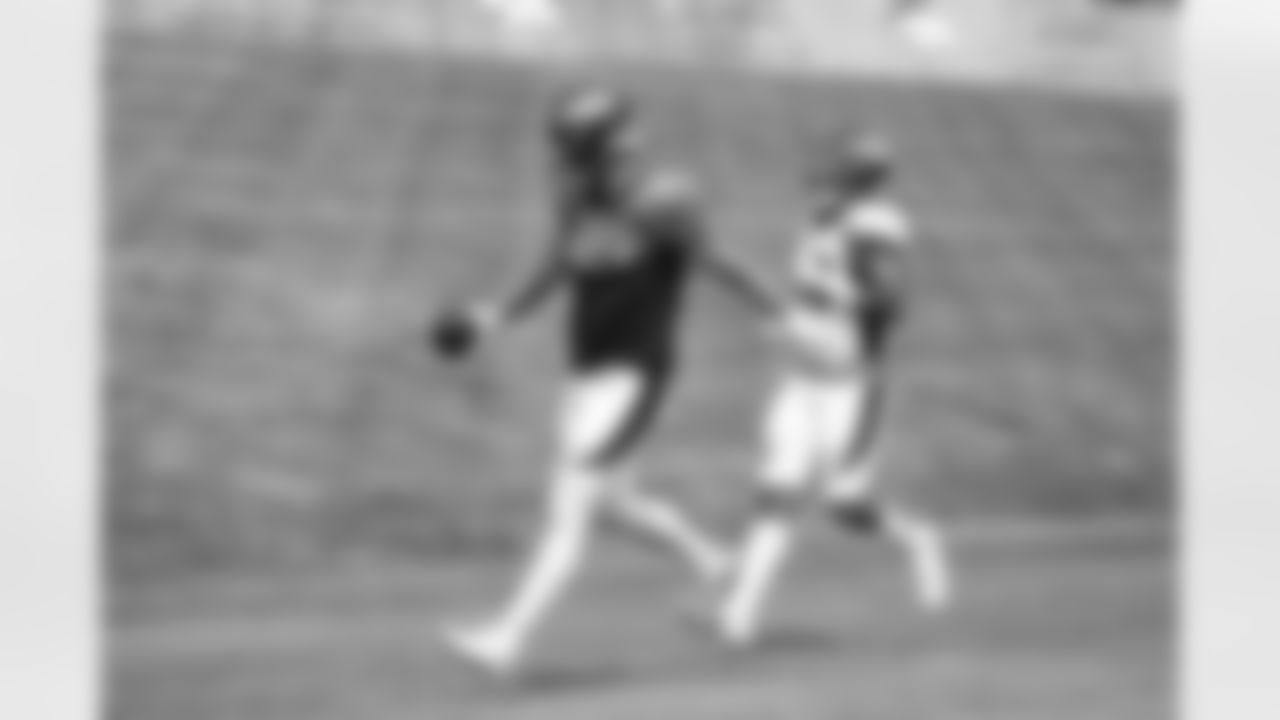
Jake Butt makes a catch for a touchdown during the seventh training camp practice at UCHealth Training Center on August 21, 2020. (Photo by Ben Swanson)
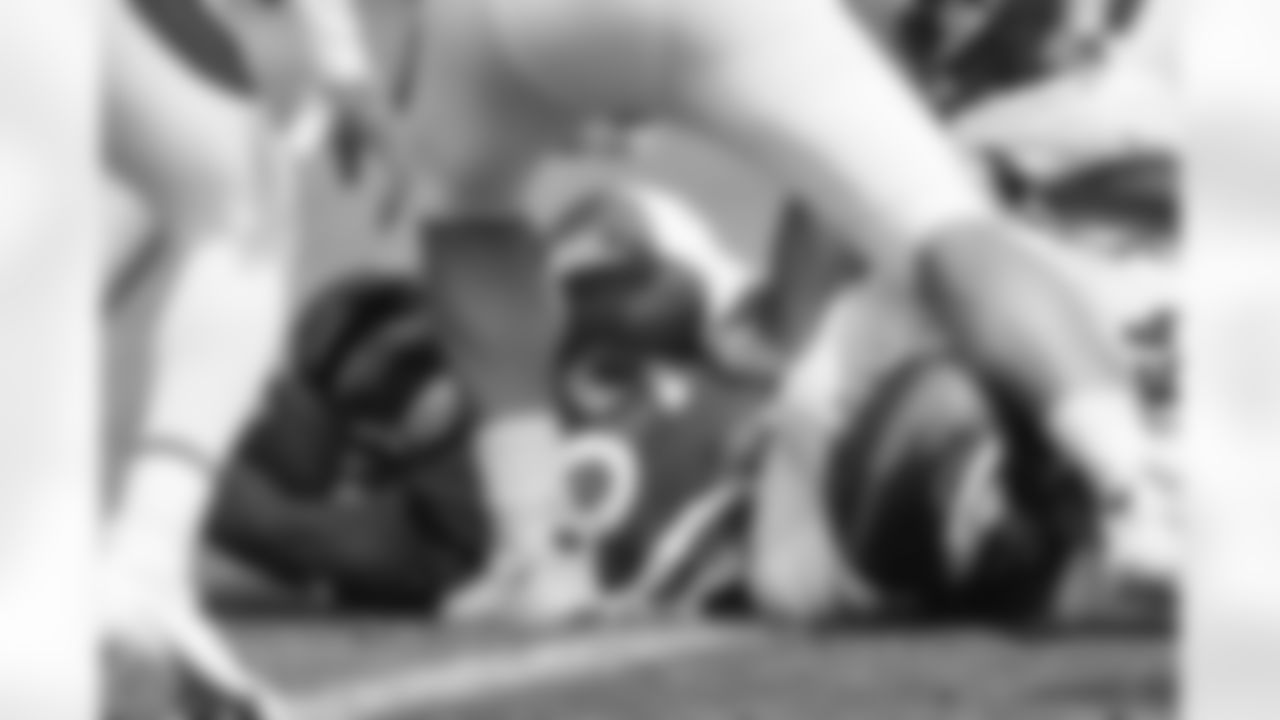
Jeremy Cox stretches across the goal line for a touchdown during the seventh training camp practice at UCHealth Training Center on August 21, 2020. (Photo by Ben Swanson)
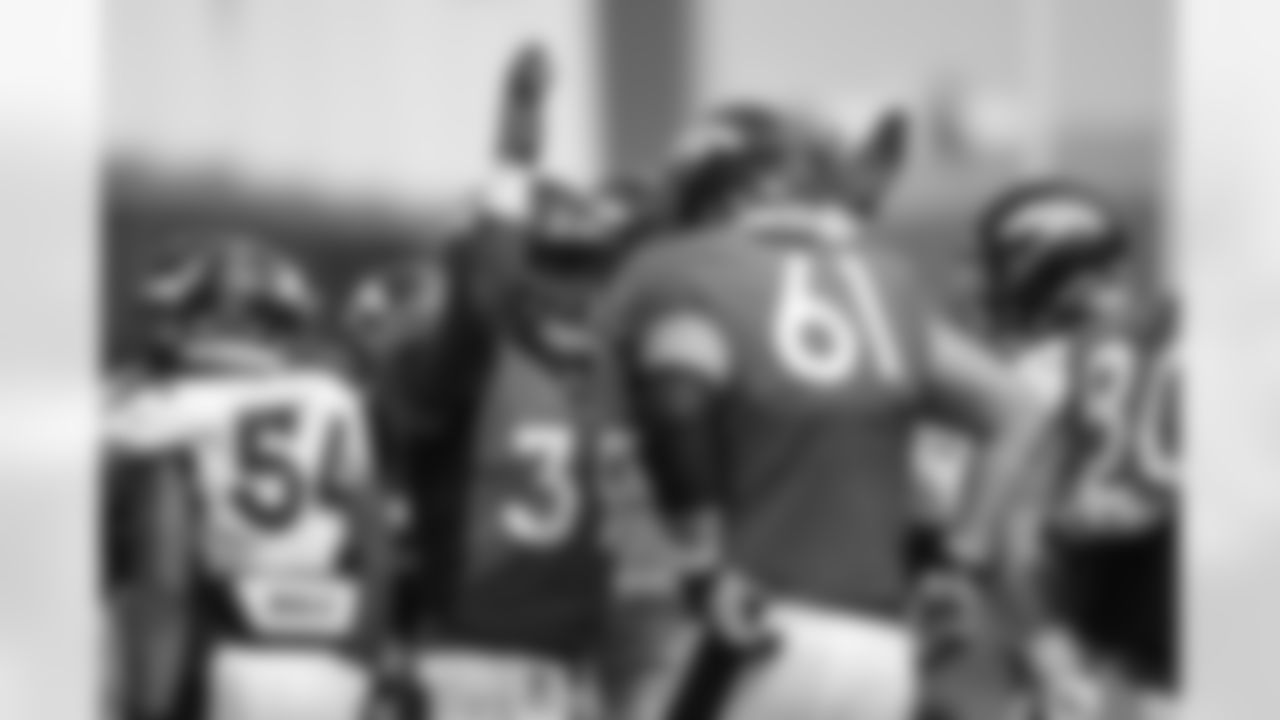
Jeremy Cox and Graham Glasgow celebrate a touchdown during the seventh training camp practice at UCHealth Training Center on August 21, 2020. (Photo by Ben Swanson)
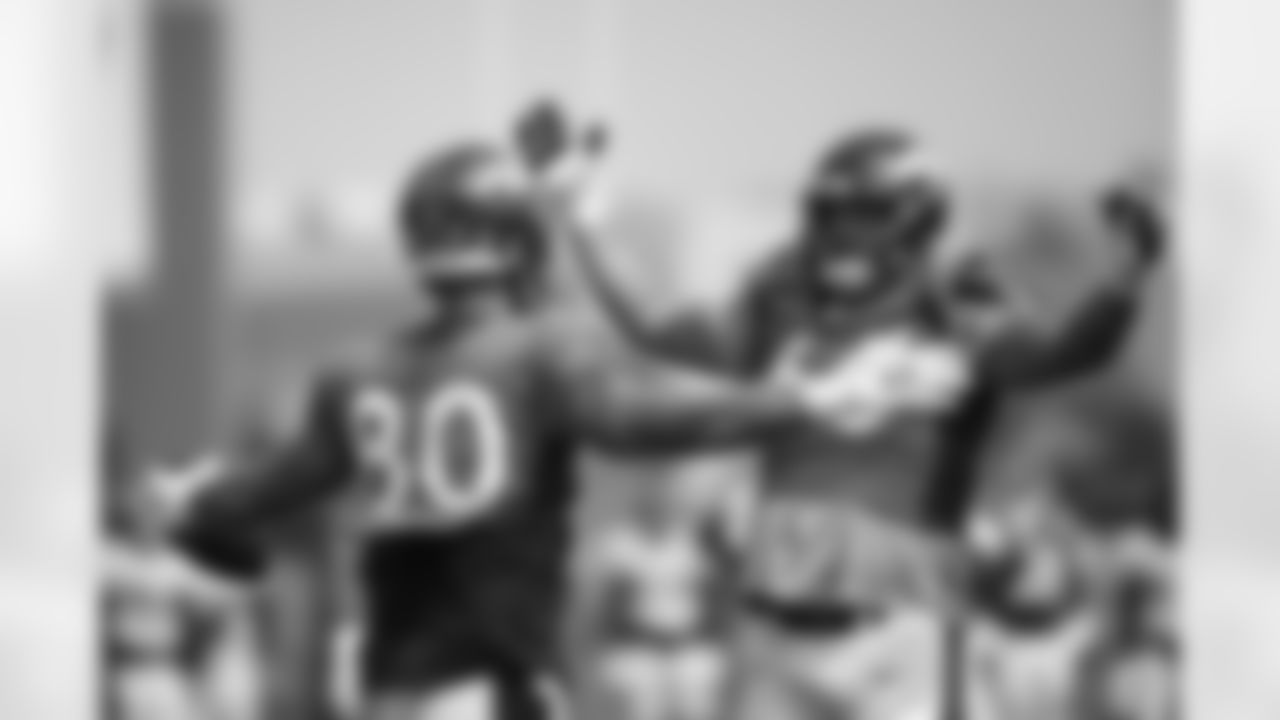
Jake Butt and Dalton Risner celebrate Butt's touchdown catch during the seventh training camp practice at UCHealth Training Center on August 21, 2020. (Photo by Ben Swanson)
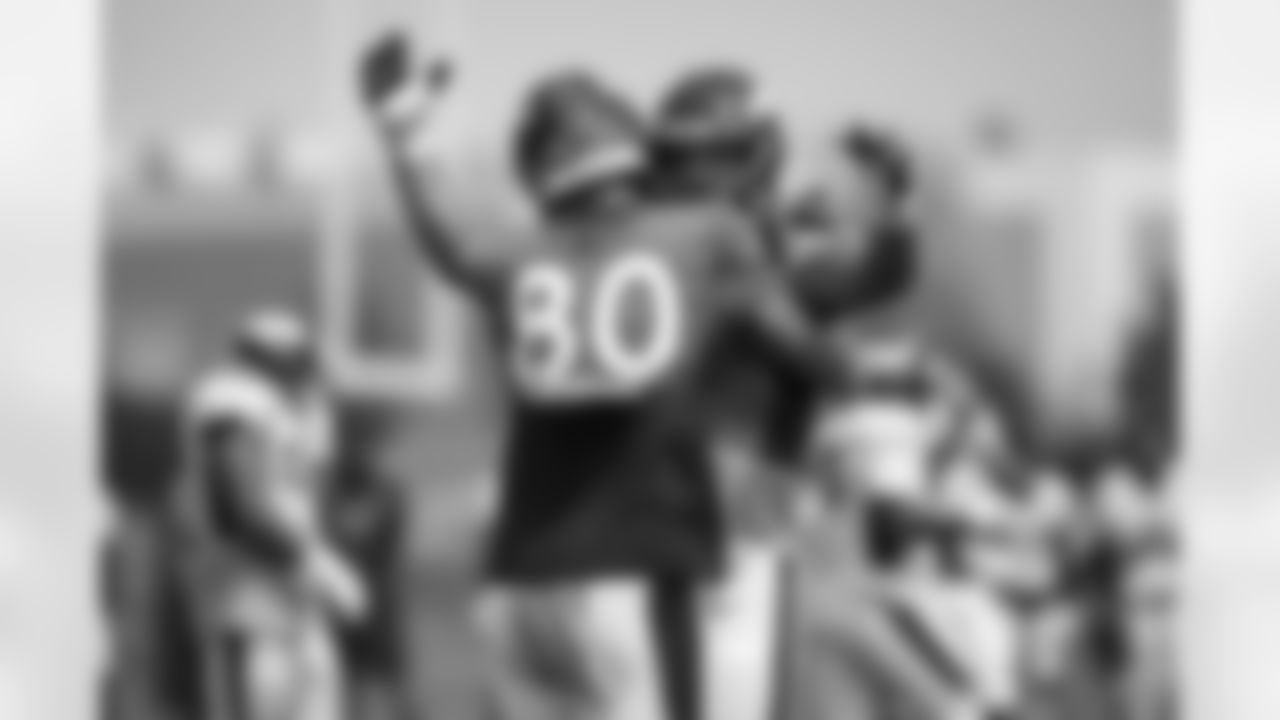
Jake Butt and Dalton Risner celebrate Butt's touchdown catch during the seventh training camp practice at UCHealth Training Center on August 21, 2020. (Photo by Ben Swanson)

Jerry Jeudy during training camp at UCHealth Training Center in Centennial, CO, August 21, 2020. Photo by Gabriel Christus

Jerry Jeudy during training camp at UCHealth Training Center in Centennial, CO, August 21, 2020. Photo by Gabriel Christus
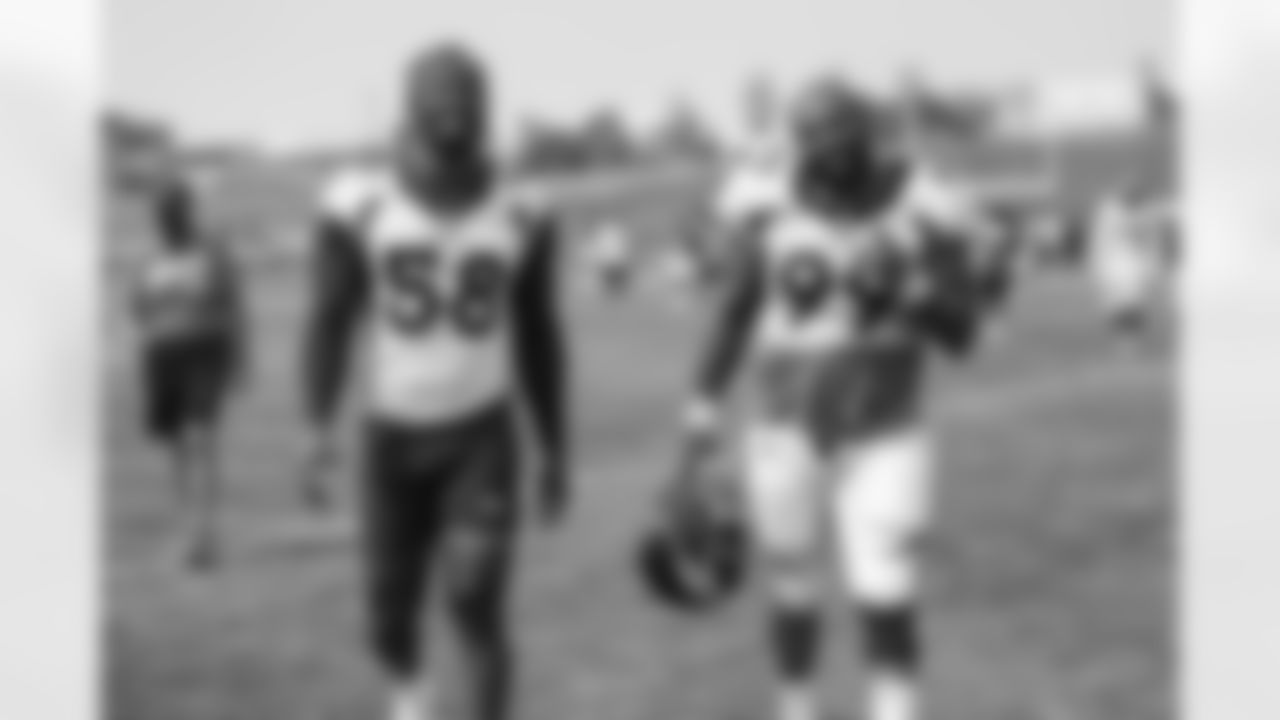
Von Miller and Jurrell Casey pose for a photo as they walk off the field after the seventh training camp practice at UCHealth Training Center on August 21, 2020. (Photo by Ben Swanson)
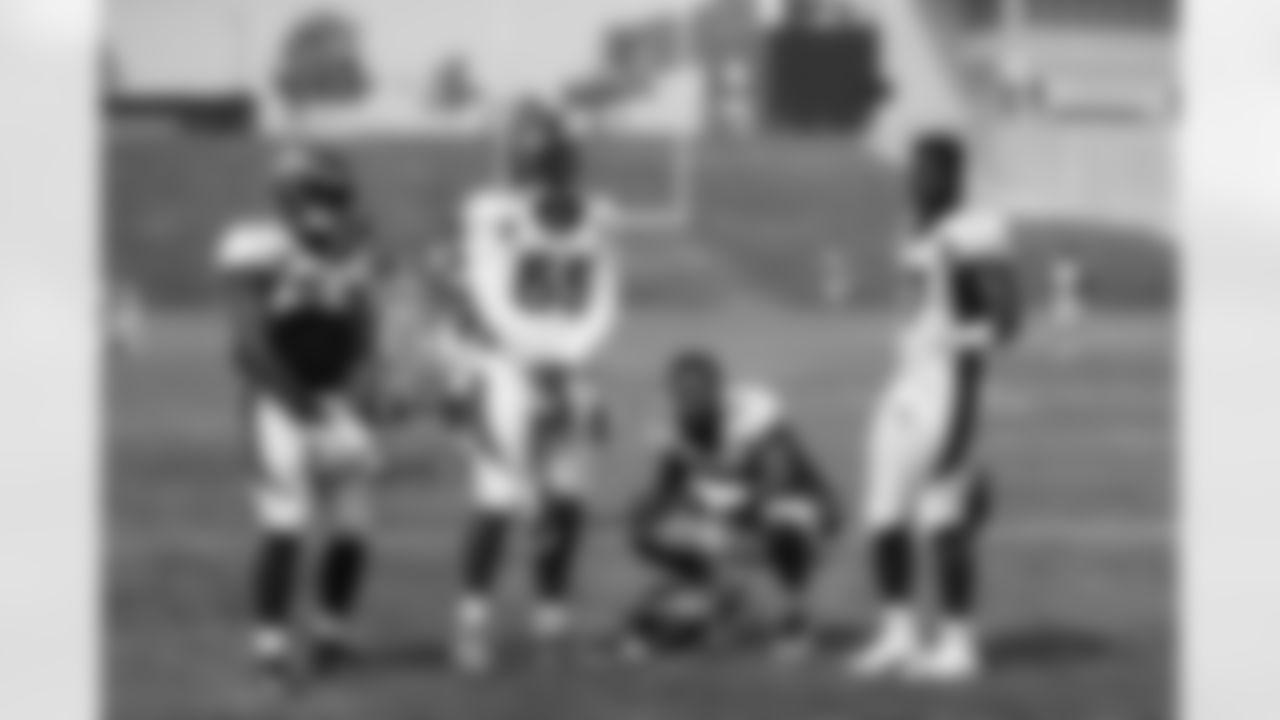
Josh Watson, Bradley Chubb, Justin Hollins and Jeremiah Attaochu during training camp at UCHealth Training Center in Centennial, CO, August 21, 2020. Photo by Gabriel Christus
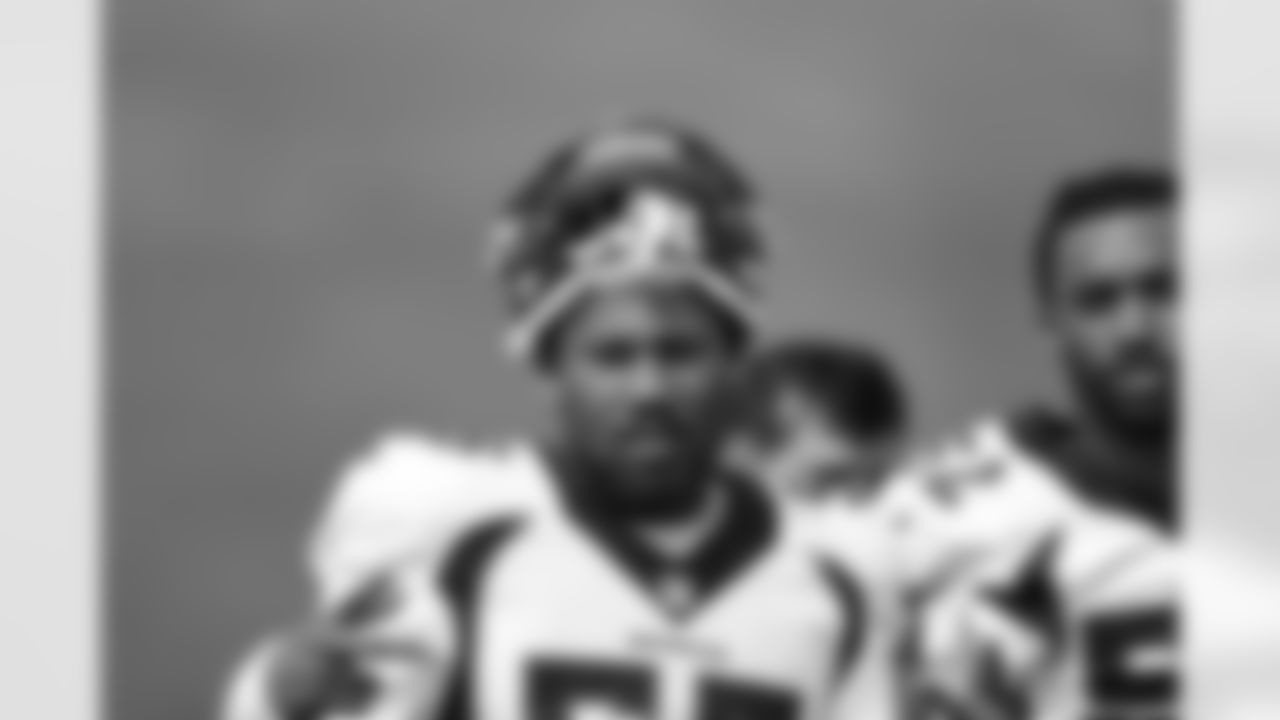
Bradley Chubb and Justin Hollins during training camp at UCHealth Training Center in Centennial, CO, August 21, 2020. Photo by Gabriel Christus
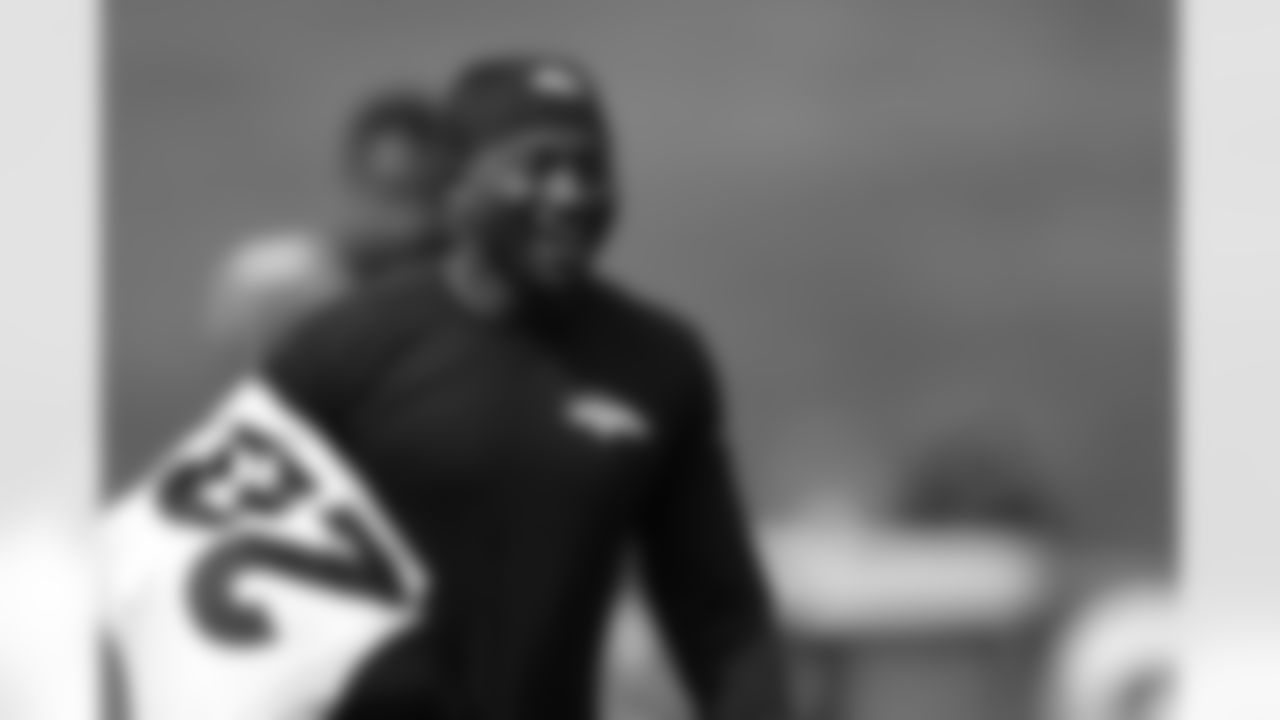
Duke Dawson Jr. during training camp at UCHealth Training Center in Centennial, CO, August 21, 2020. Photo by Gabriel Christus
How his work ethic with Marvin Harrison could be a model for Lock and Jerry Jeudy
Early in practice, Atwater noted how Manning built a connection with Hall of Fame wide receiver Marvin Harrison early in their careers. As Lock worked with Jeudy before the team period, Manning remarked that the biggest thing might just be having a teammate who is willing to consistently put in the hard work that's necessary to create make that kind of partnership work at a high level.
"As we're watching practice, I'm watching Drew Lock and Jerry Jeudy kind of work on their timing — that's what any young quarterback looks for, is to find a guy that you have a connection with, that you're both about the same age and [someone who] you can hopefully play a long time with," Manning said. "But you mentioned how many passes, completions, I threw to Marvin in games. I mean, Steve, let's multiply that times 50 for all the throws in practice — in March, April, May, June. … It just never stopped. That was probably my favorite thing about playing, was all the hard work you did in April, working on a 15-yard out route, timing route, and you complete that in January against the Ravens in the playoff game and you go, 'You know what? It was worth it out there throwing in April.' … Everything matters. Marvin loved to work, he loved to practice. He never came out of a practice session, never came out of the game. He could run all day, so it was just a real pleasure to play with him."
That bond of course led them to become one of the most prolific quarterback-wide receiver duos, but what you may not know is it may have also helped the Broncos when Manning came to town.
"I've got to tell you — his work ethic just resonated with the rest of our team," Manning said. "He taught Reggie Wayne how to work. Even when I got here to Denver, I can remember Demaryius [Thomas], Eric Decker kind of talking about, 'Hey, tell me about Marvin Harrison and Reggie Wayne.' I said, 'It was their work ethic. They never came out of practice.' And that's how Demaryius and Eric were. Going back to that appreciation for the players that played before, it can make a difference. It can make players better. Marvin Harrison, believe it or not, made, I think, the Denver Broncos better because our receivers wanted to know how he worked."
However, Manning didn't say that there was any physical attribute that was particularly key in molding a great receiver. The willingness to work was the one thing that tied them all together, as well as having any number of skills that forces defenses to respect you.
"I don't think there's a prototype, if you will," Manning said. "Demaryius Thomas looked different from Jerry Jeudy; Marvin Harrison looked different than Eric Decker. I think you want a good work ethic. I think you want a guy who knows how to get open. Marvin Harrison had unbelievable quickness and speed, and it was hard to jam him because if they missed, he was gone. Demaryius was so big and physical that you were more likely to kind of stay off him and keep him in front of you. Ultimately, you want guys who will put a little — maybe not fear — but the defense has to respect [you]. I think that's what you're looking for. To me that comes a lot of different ways."














